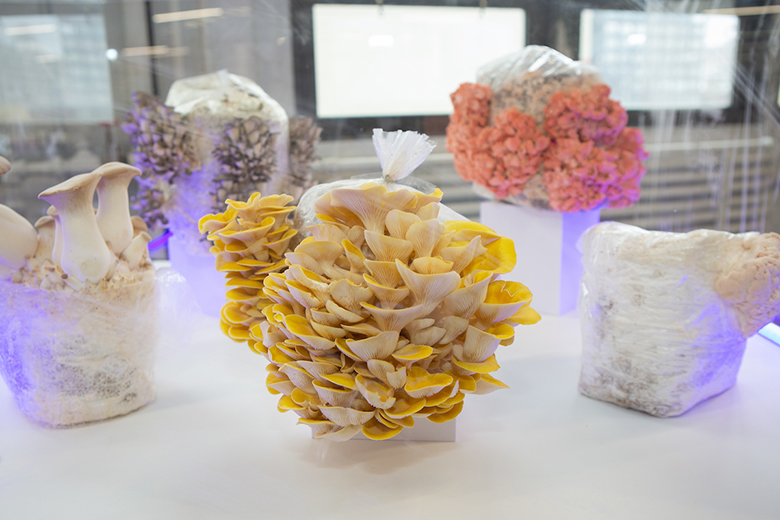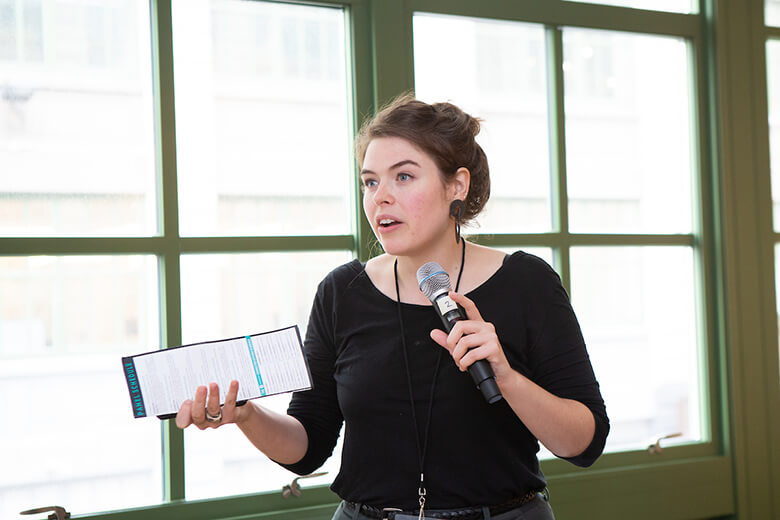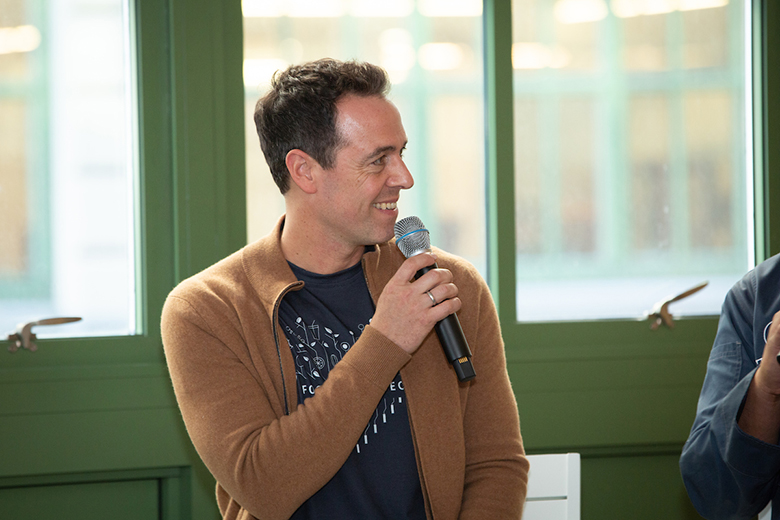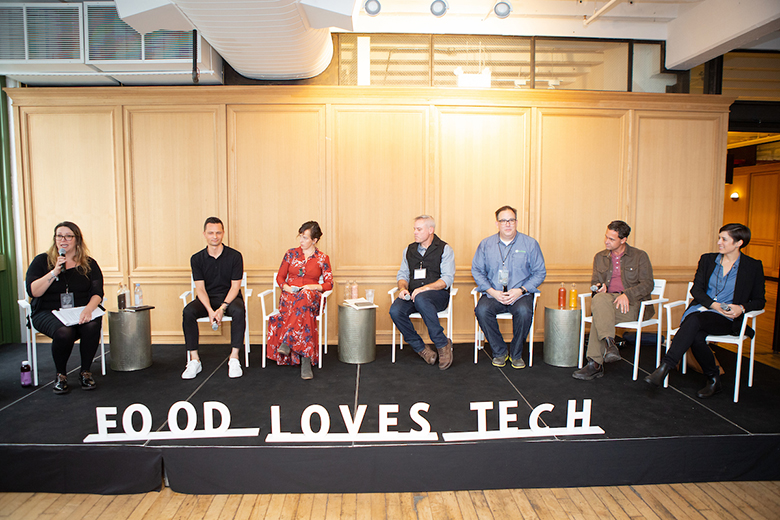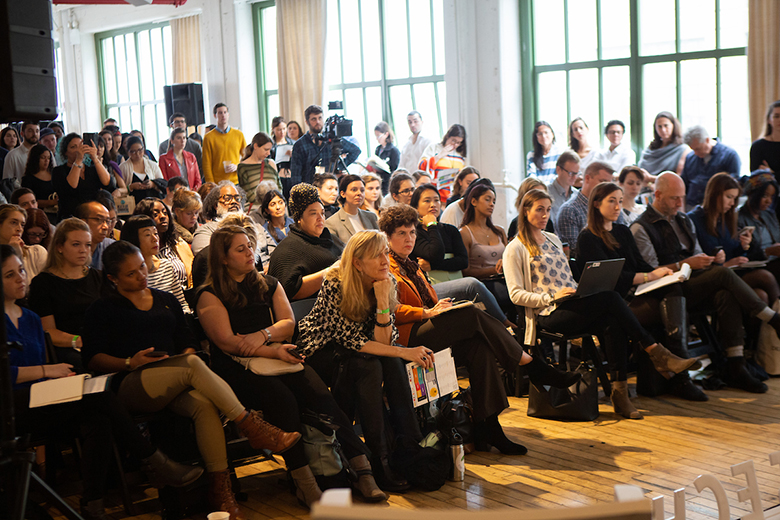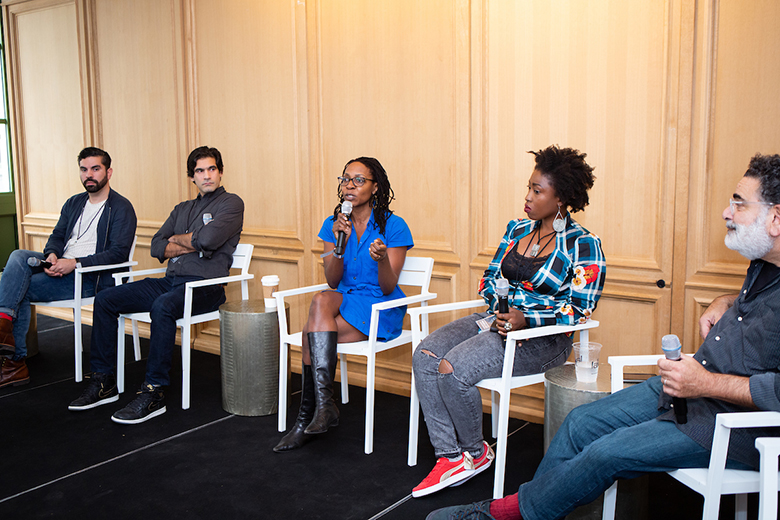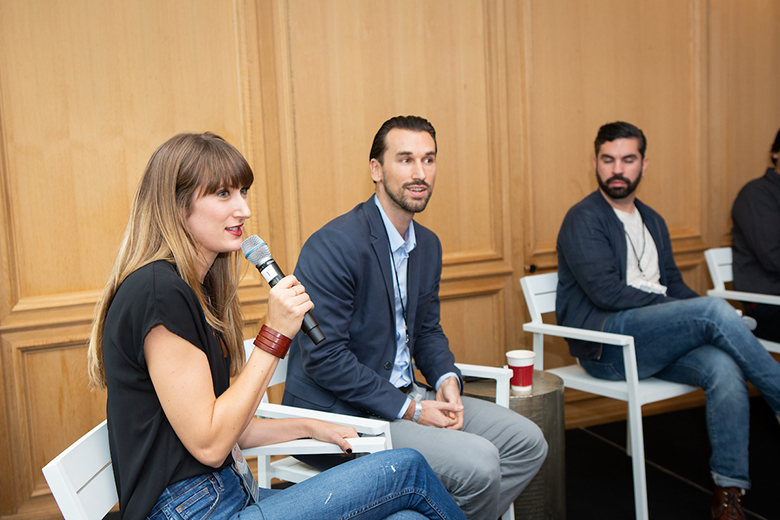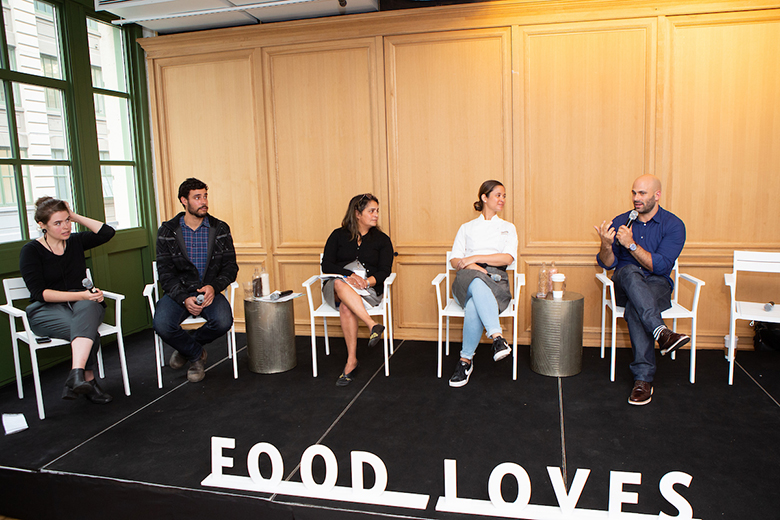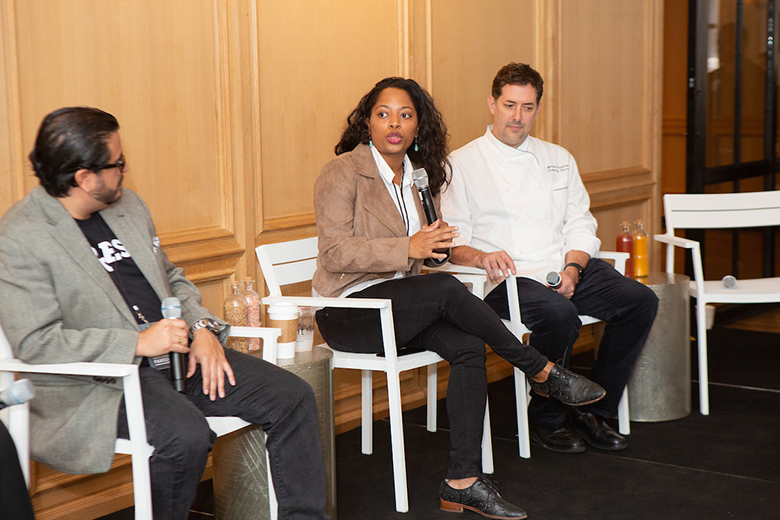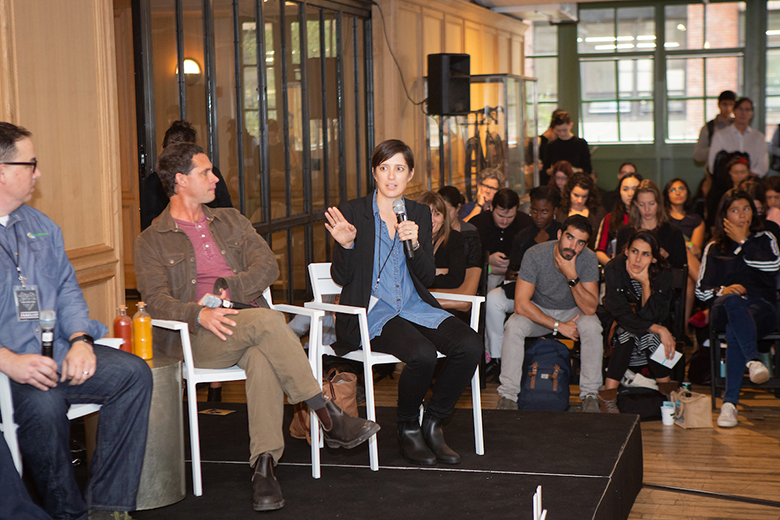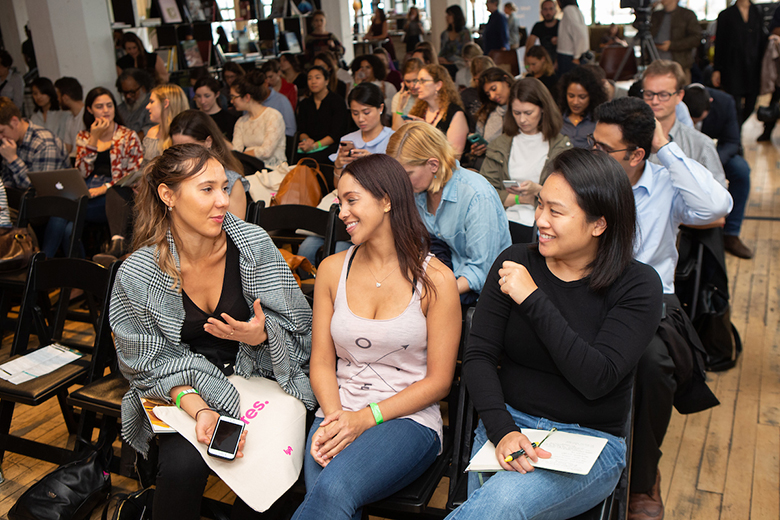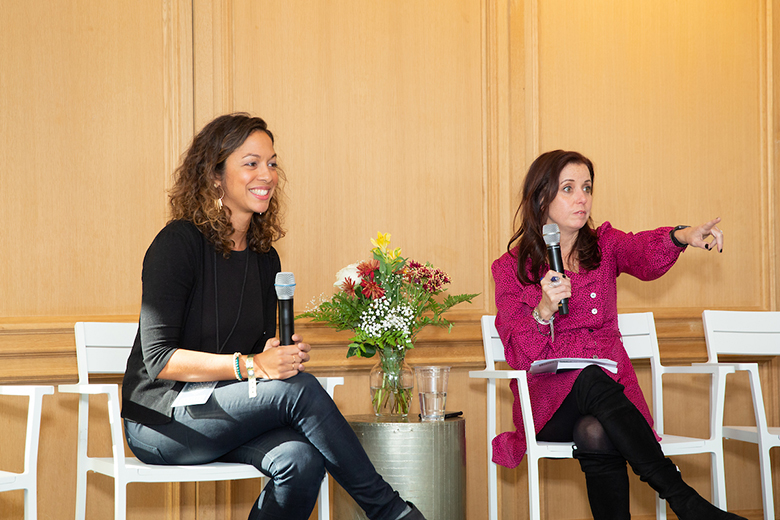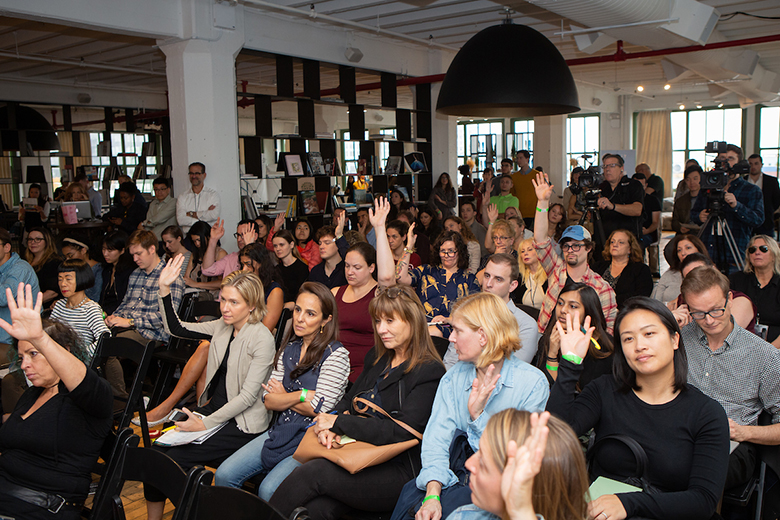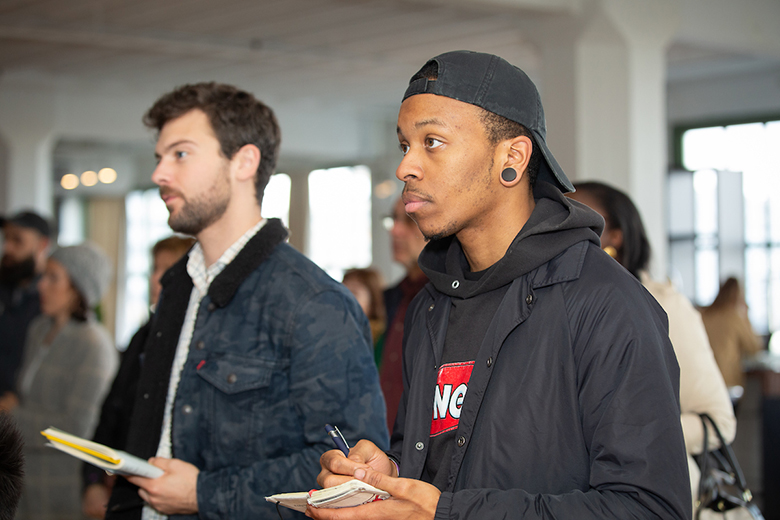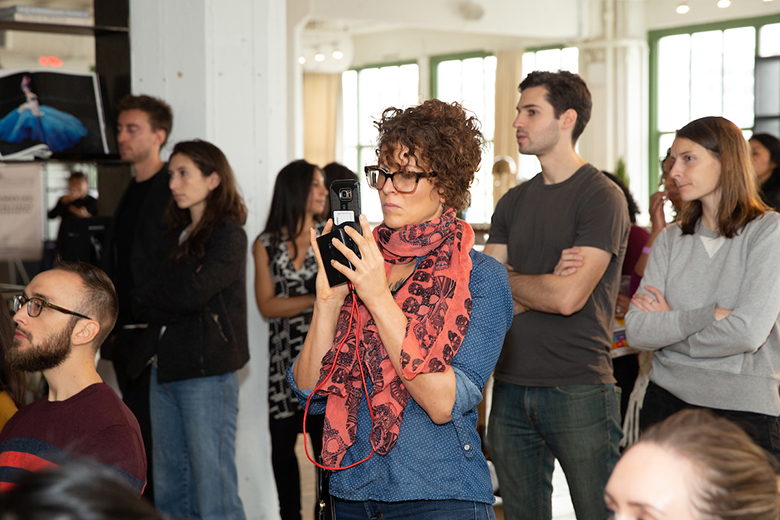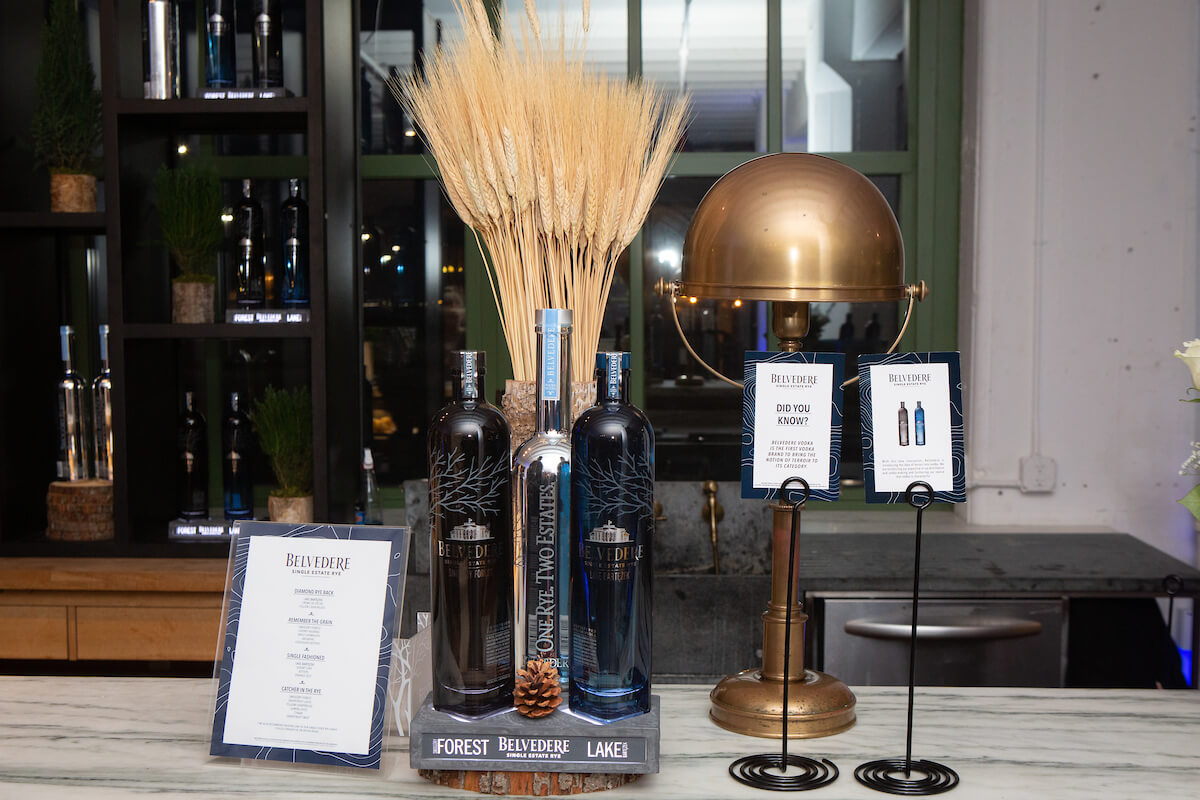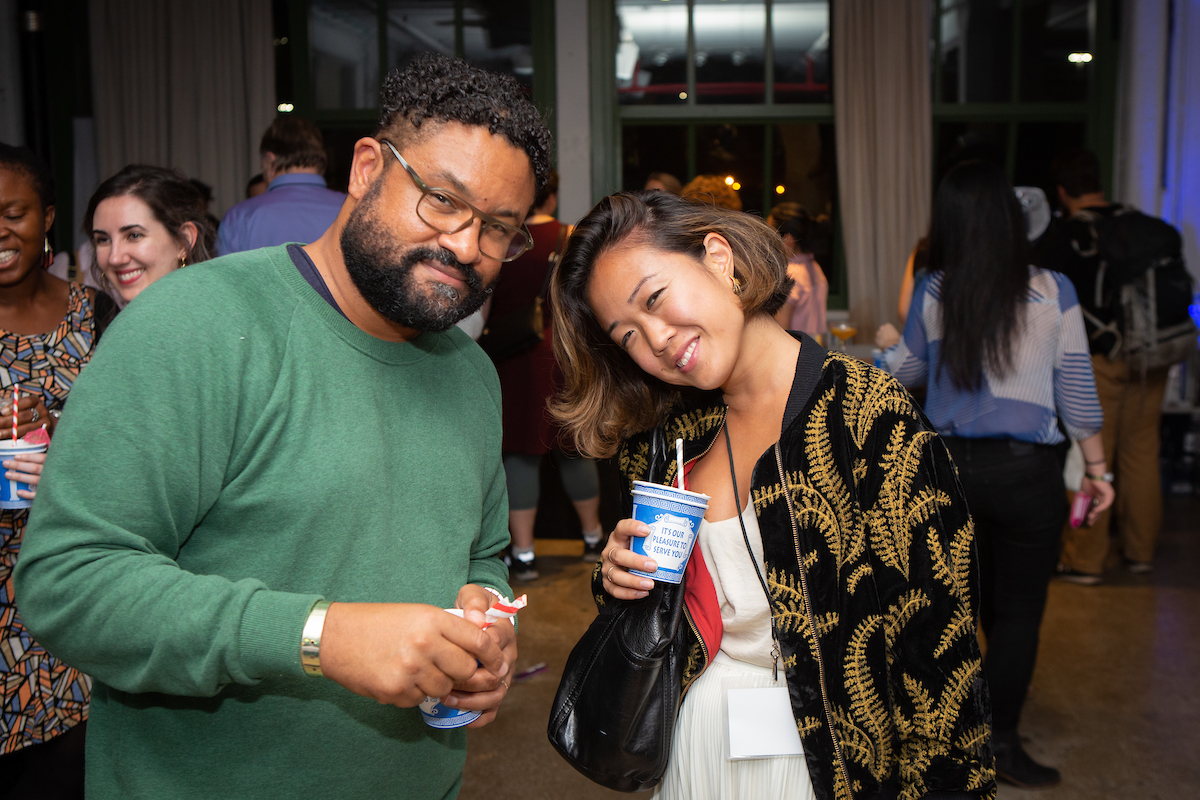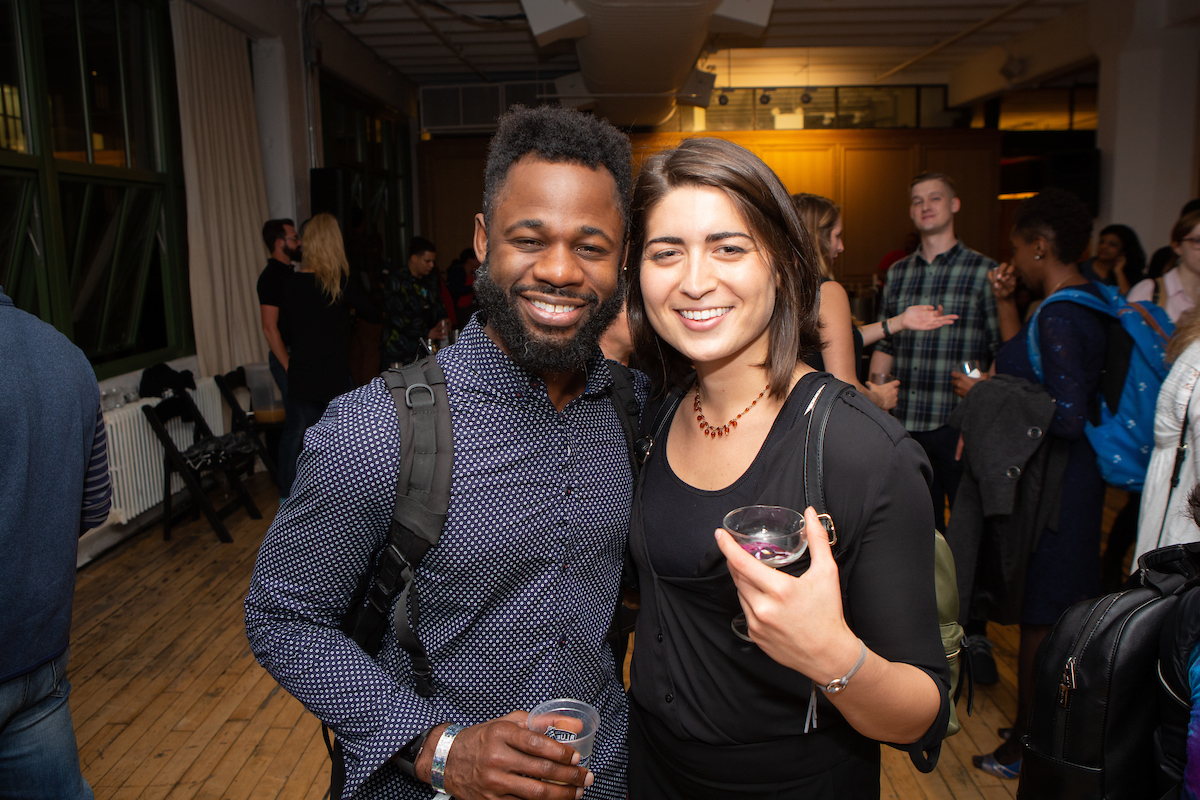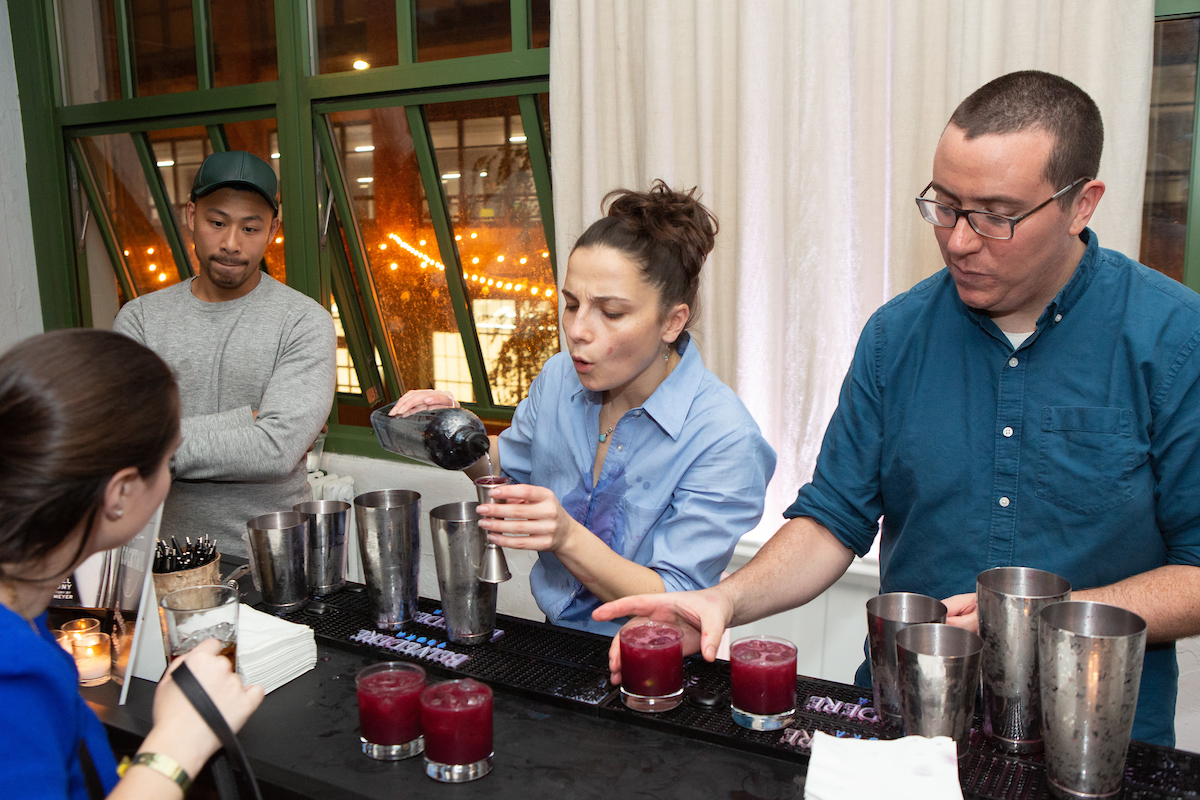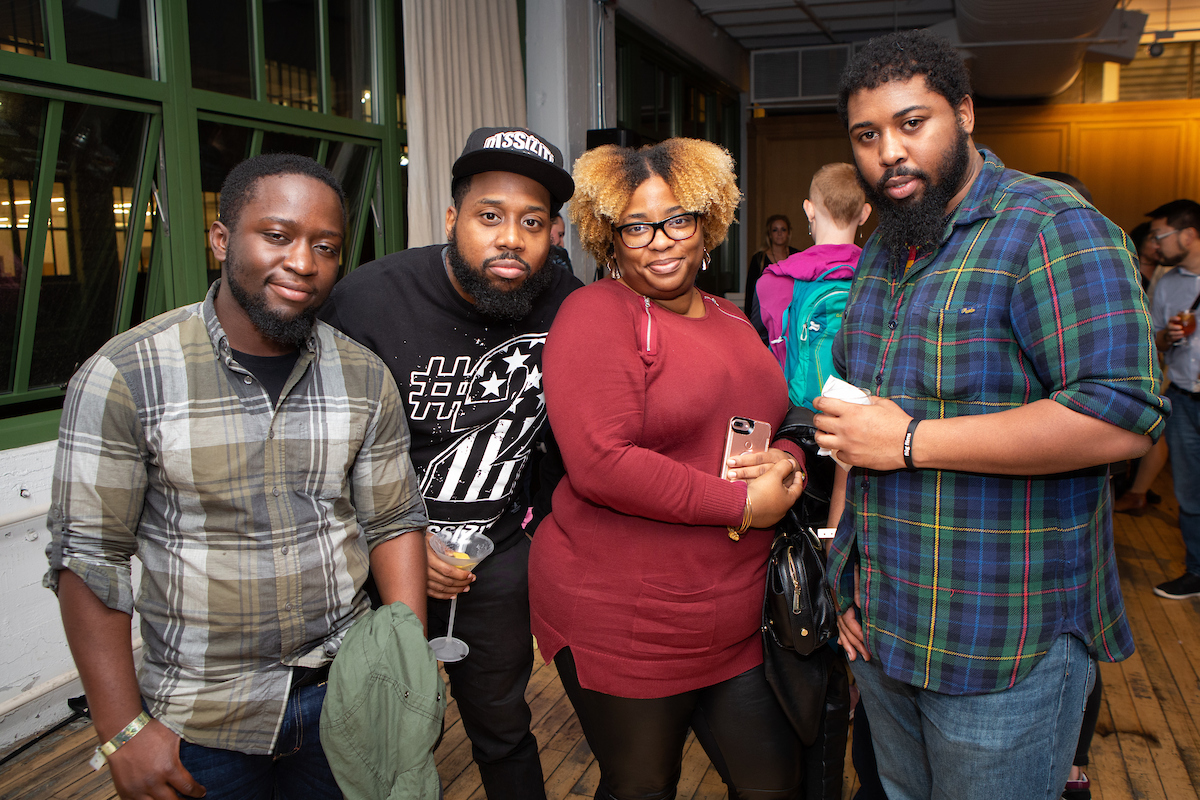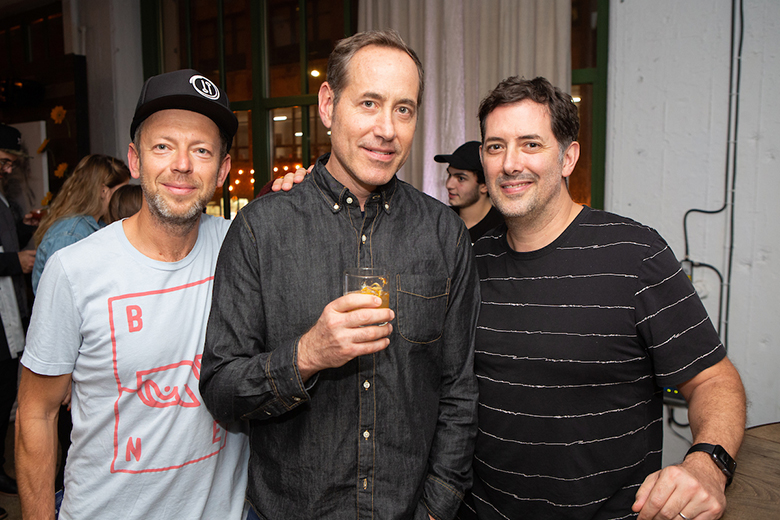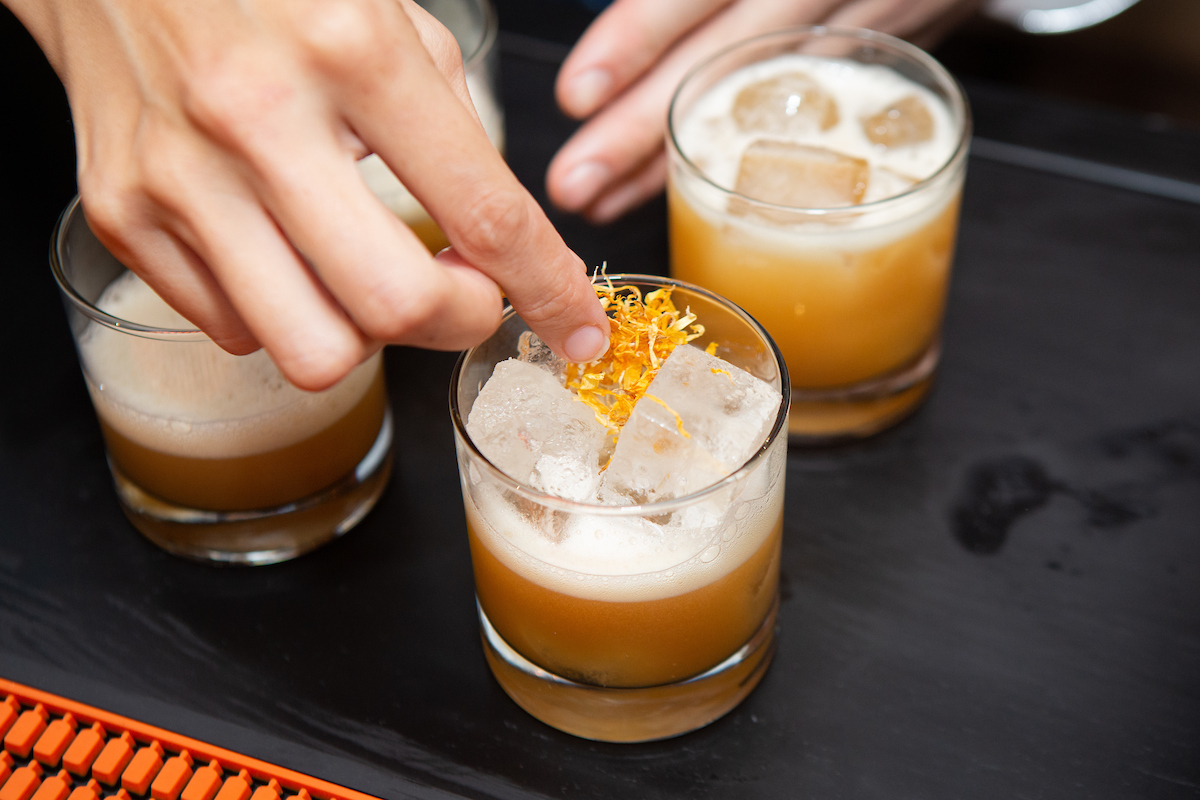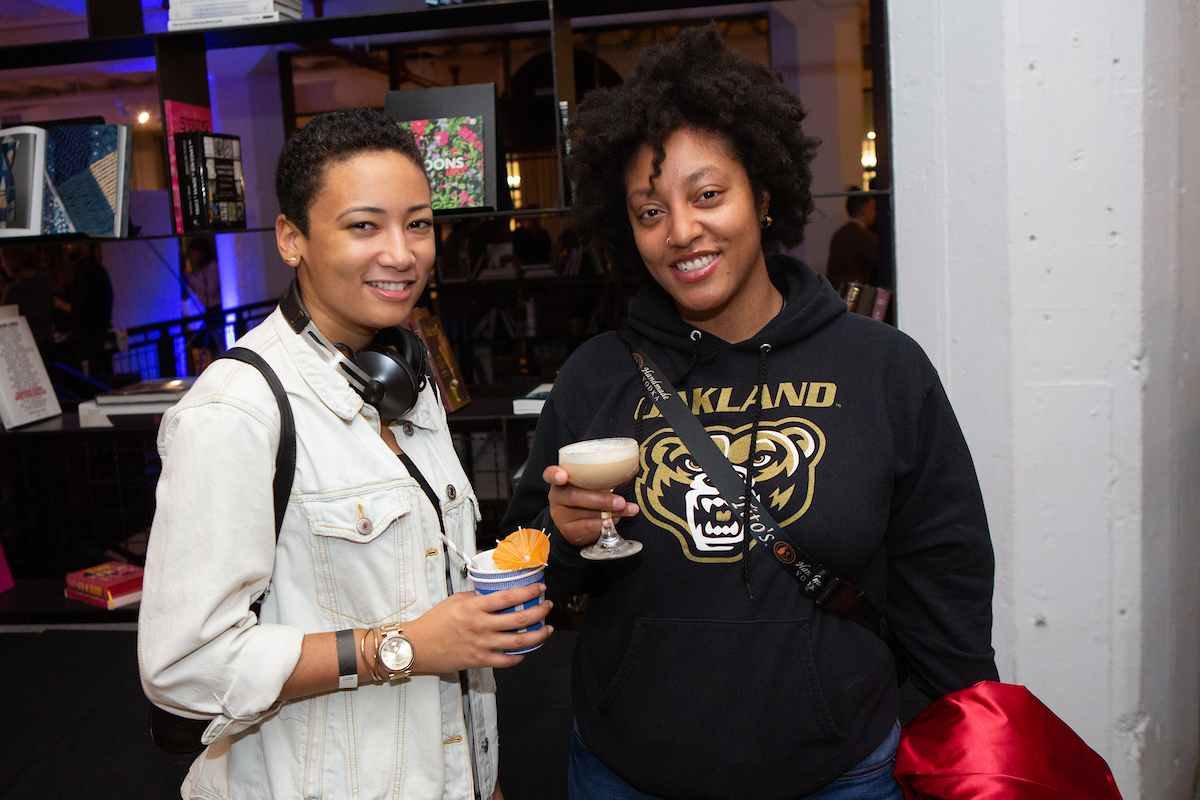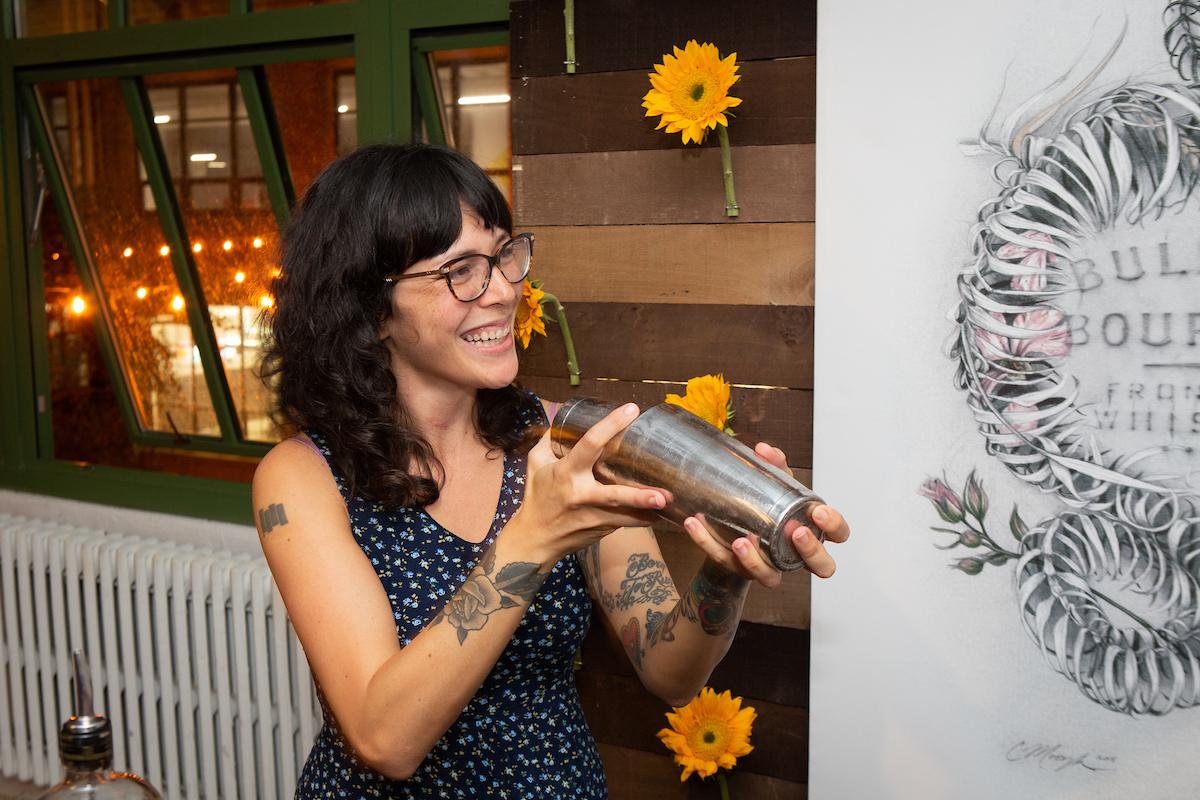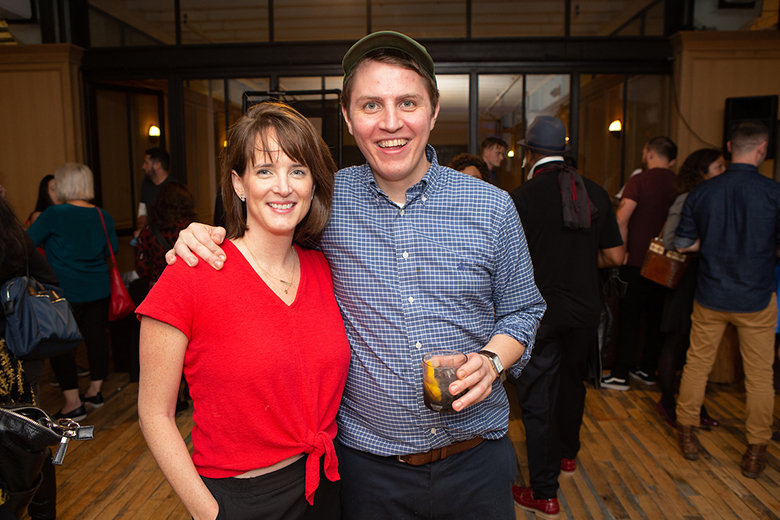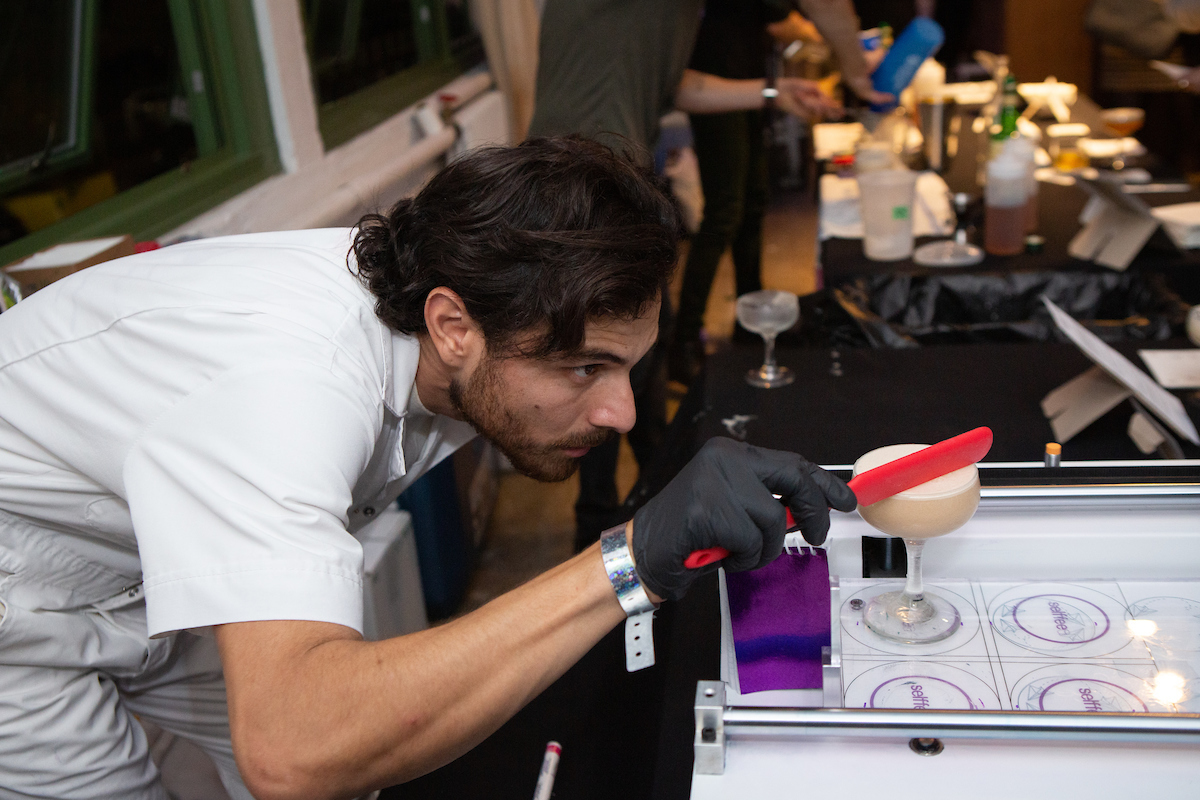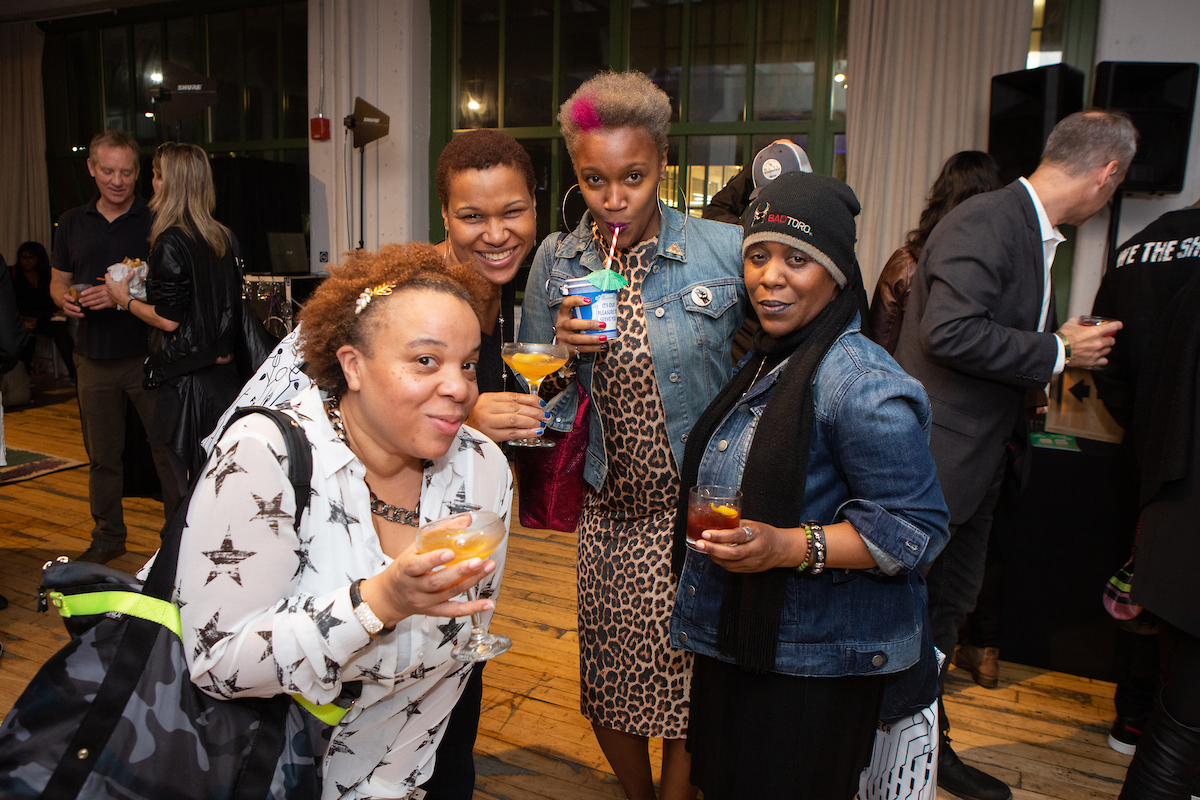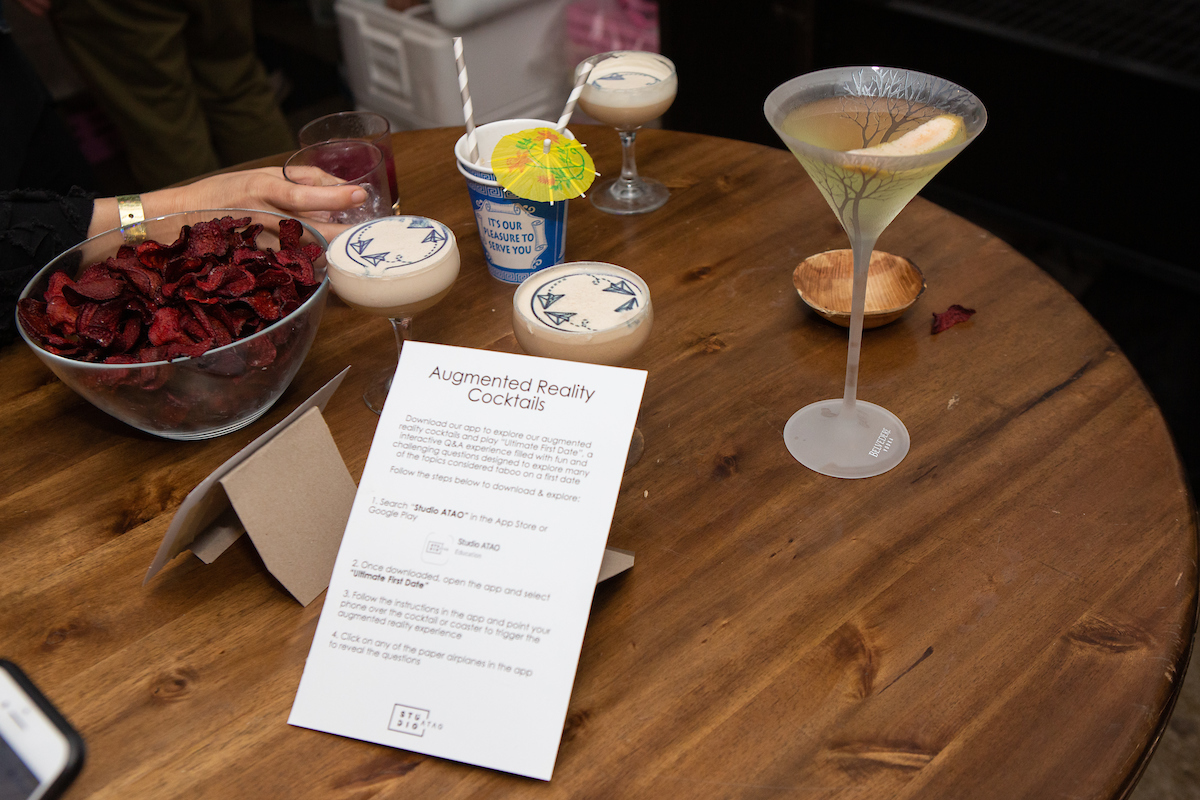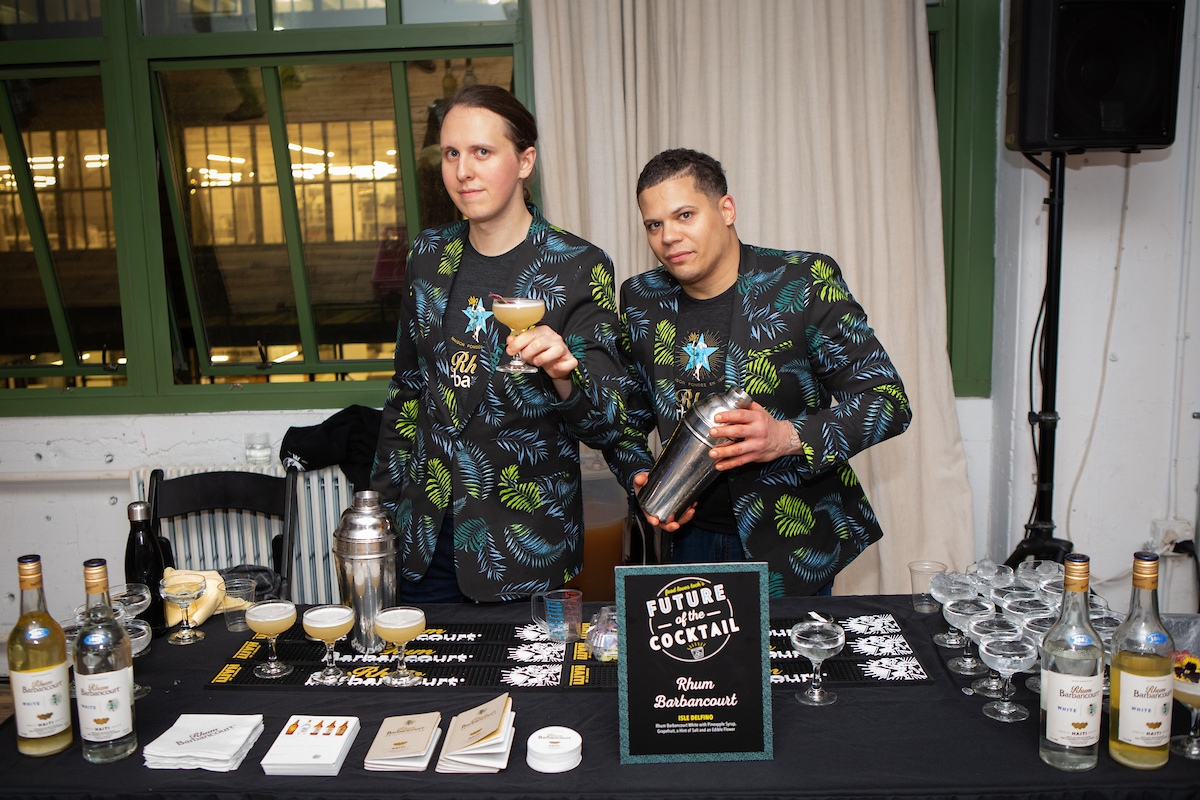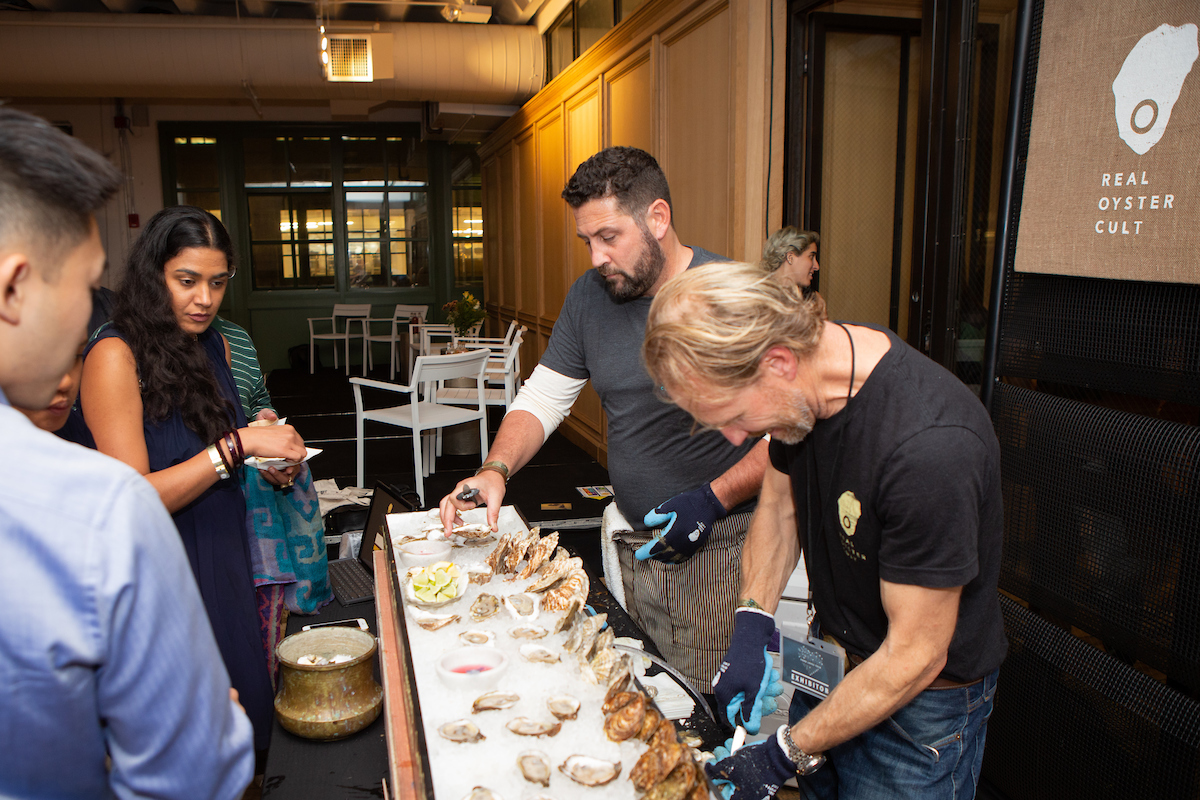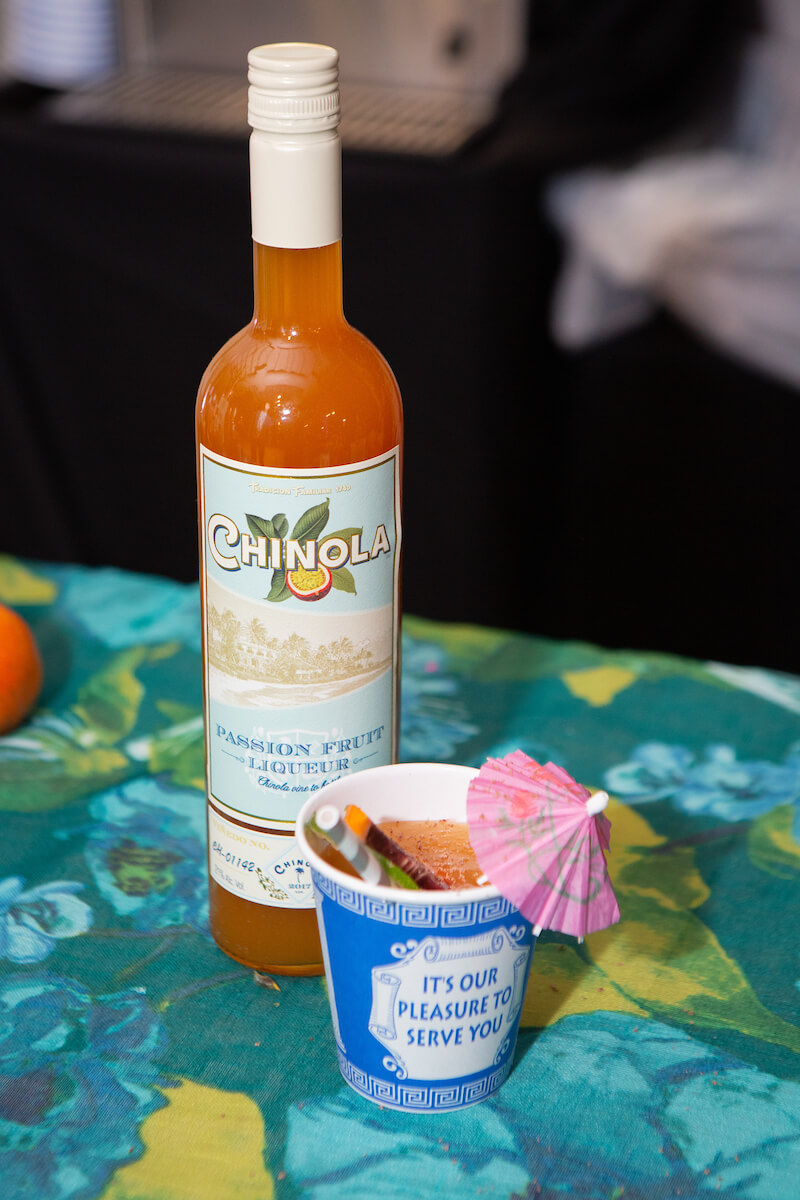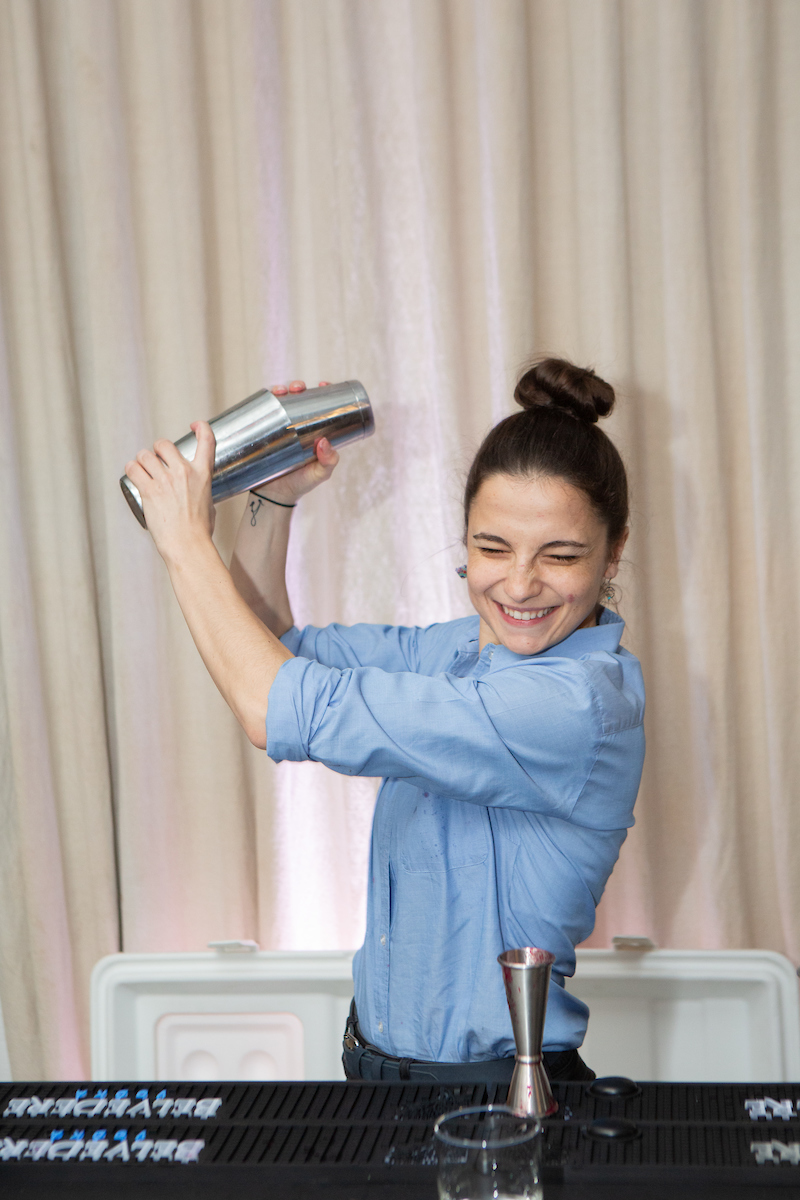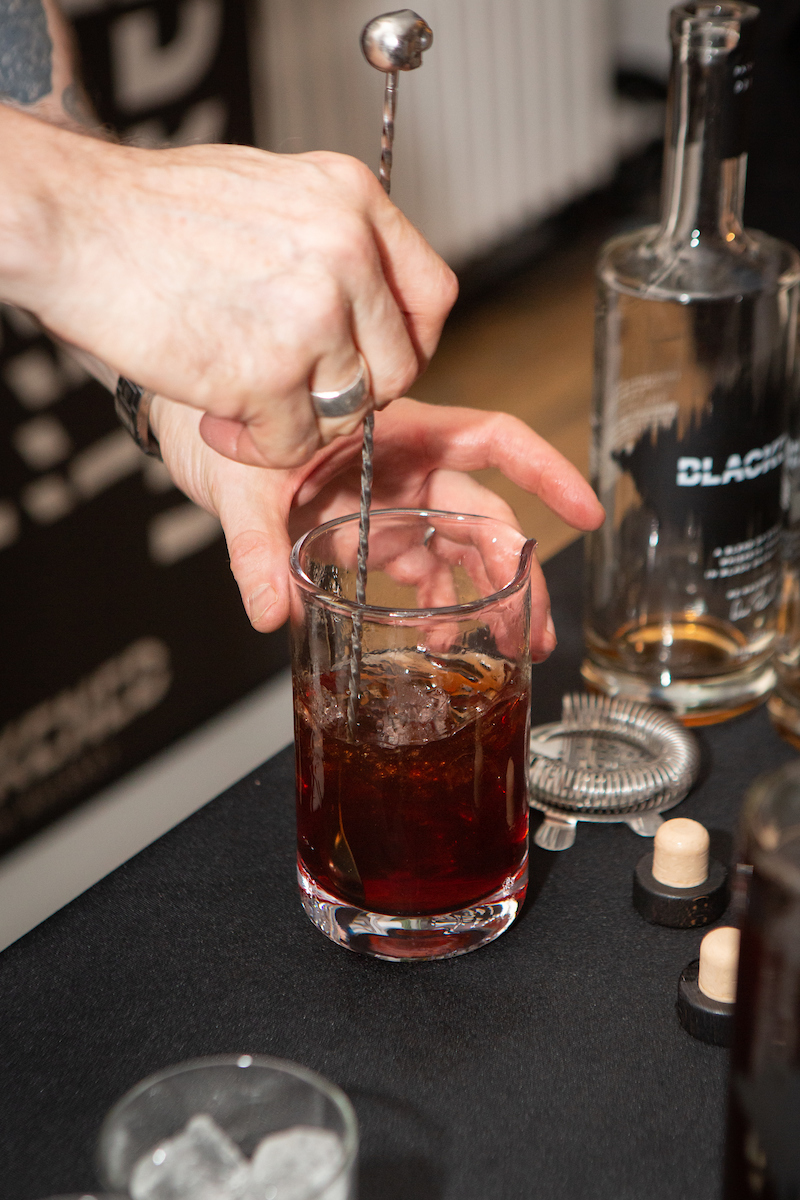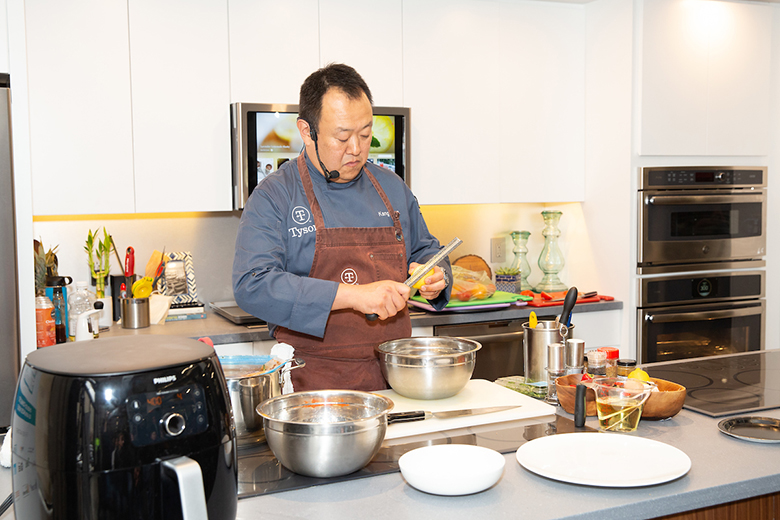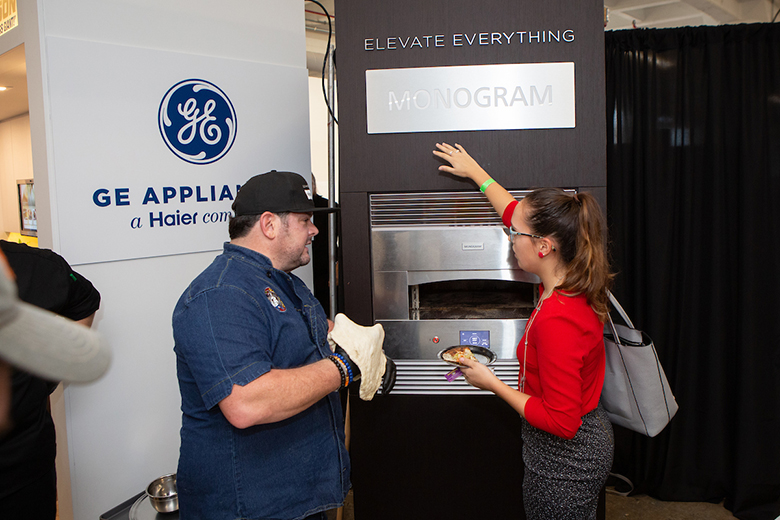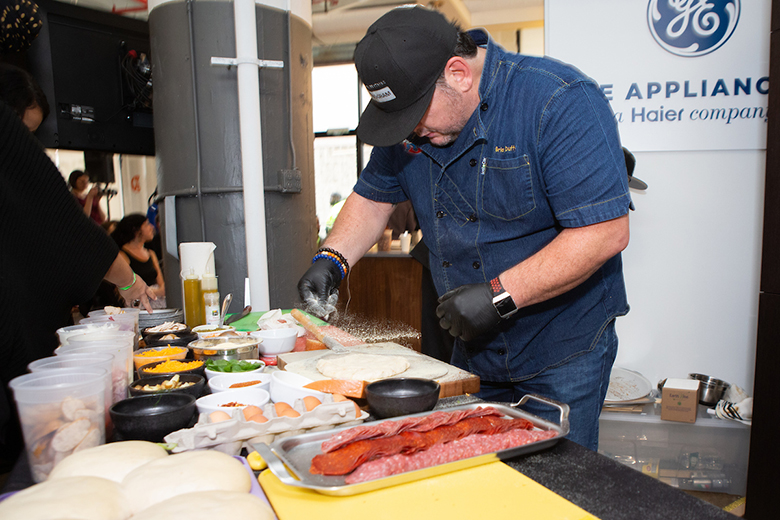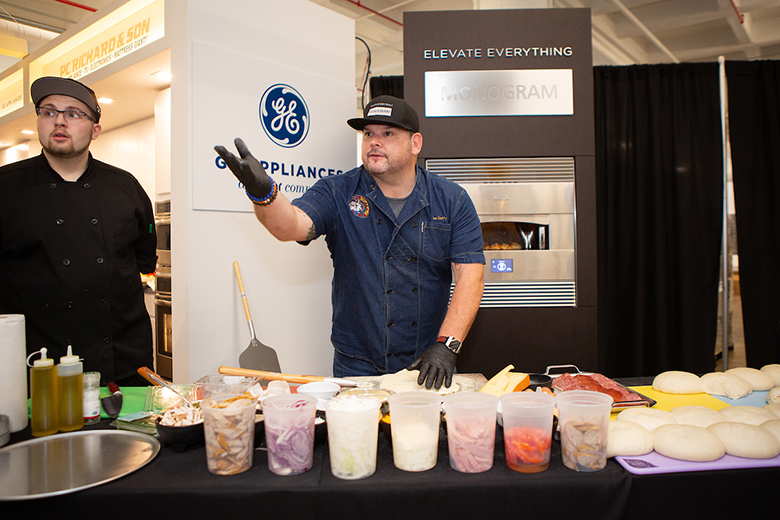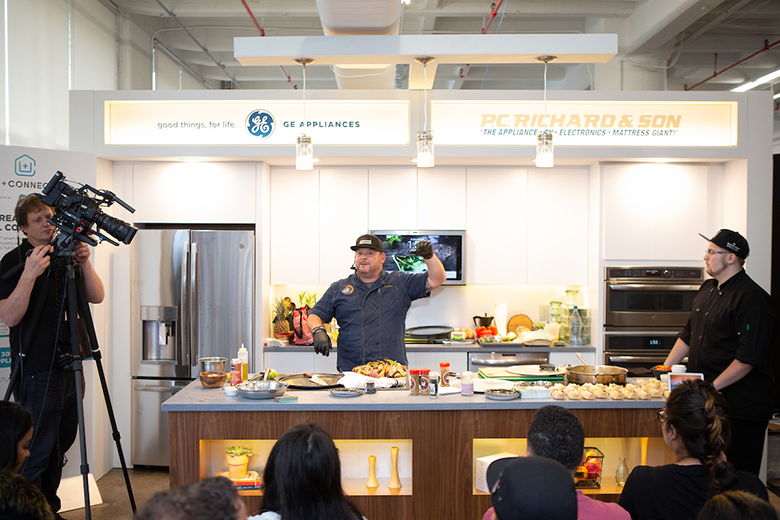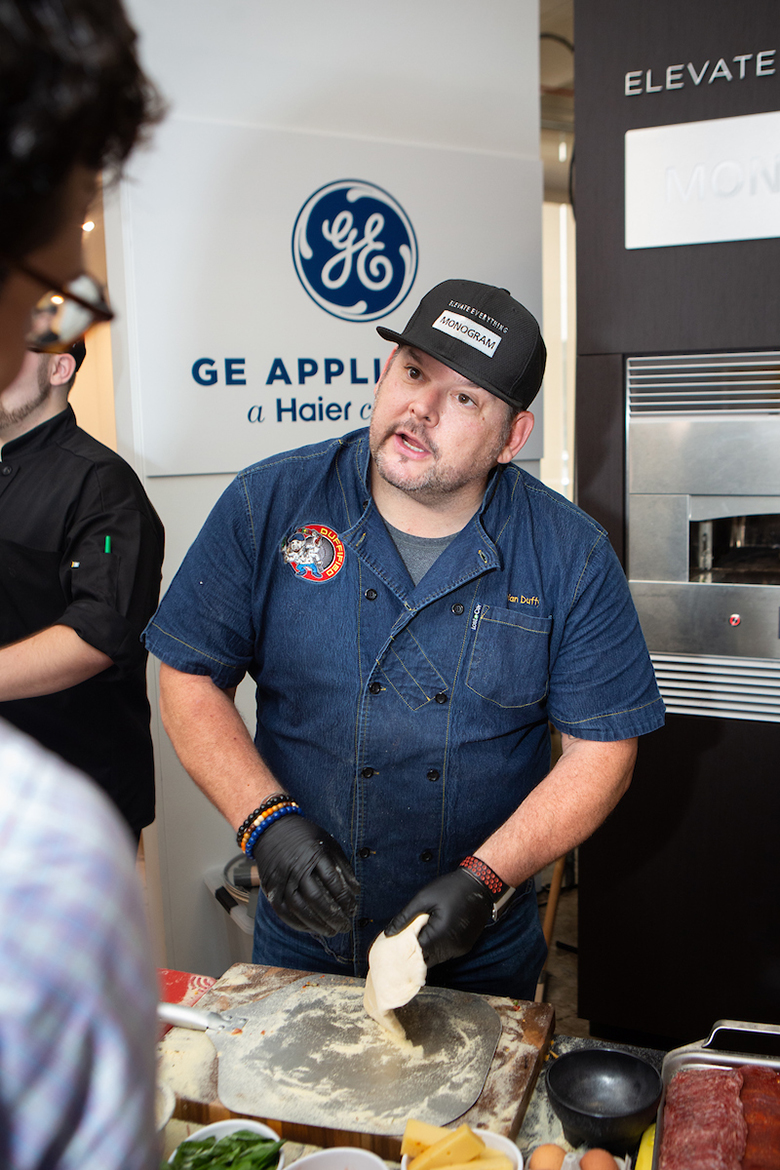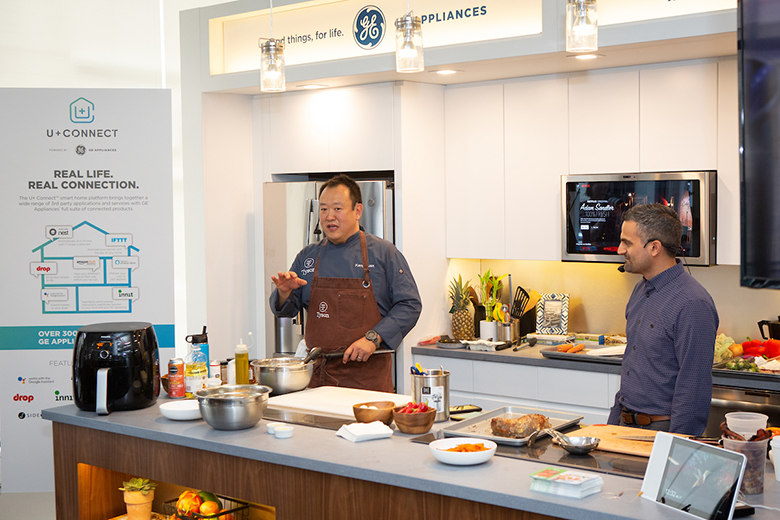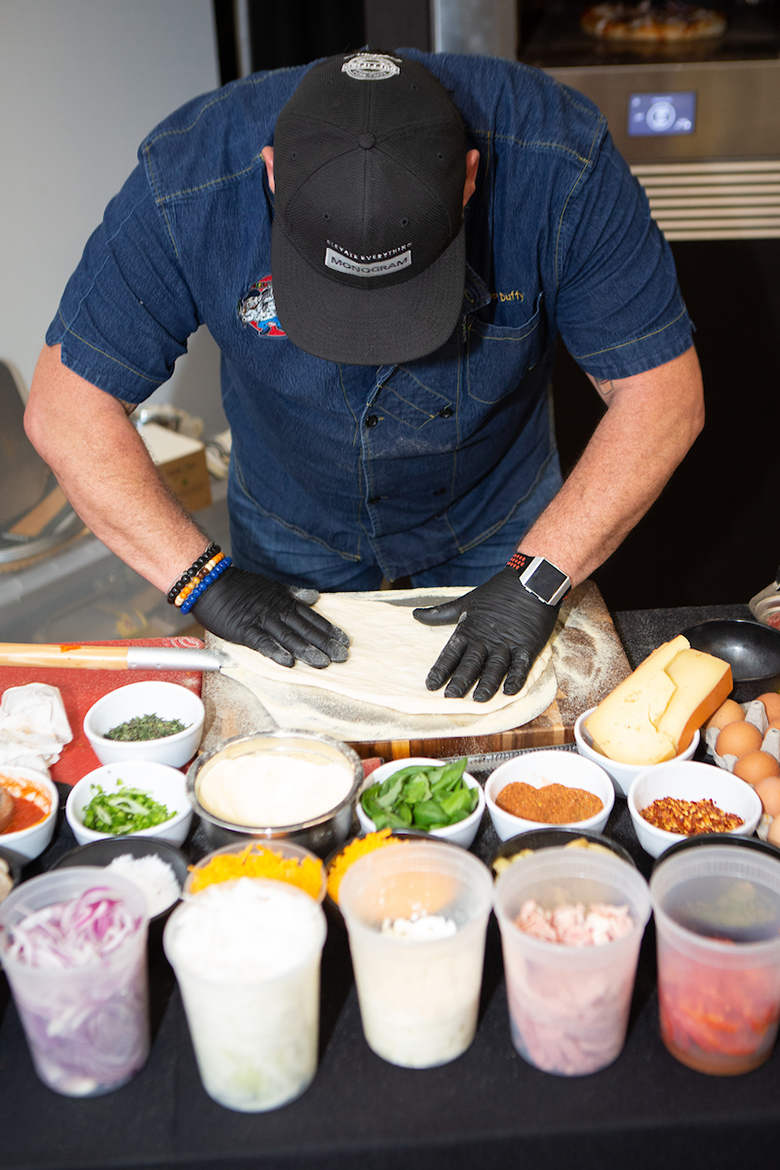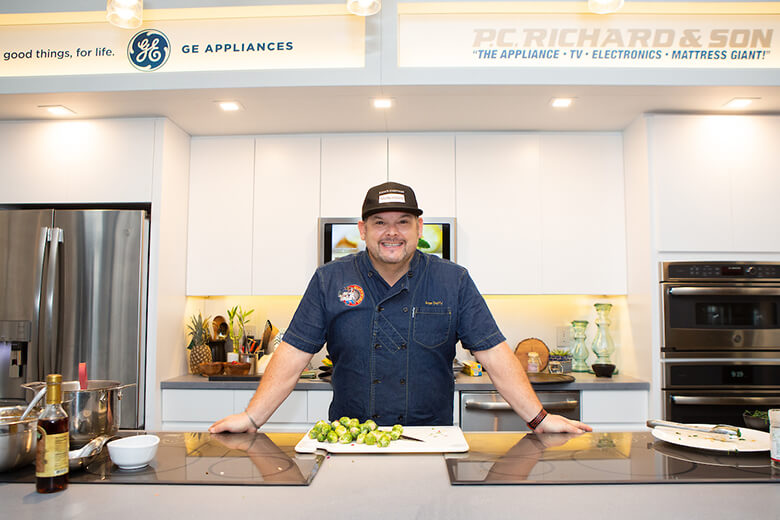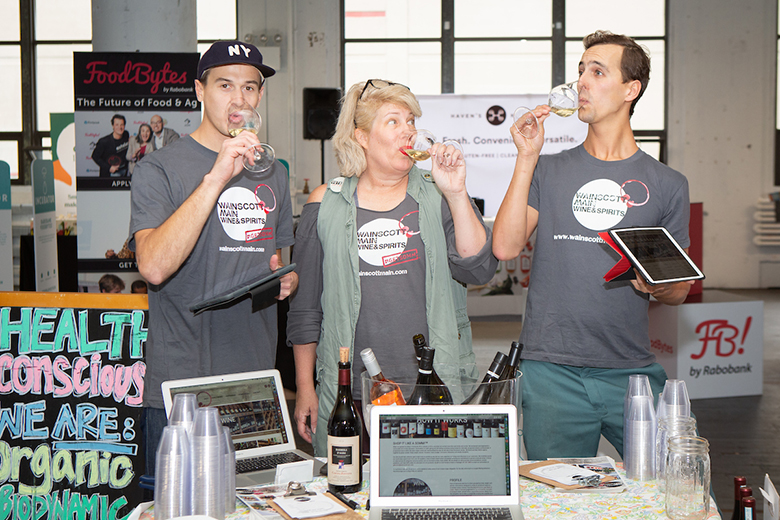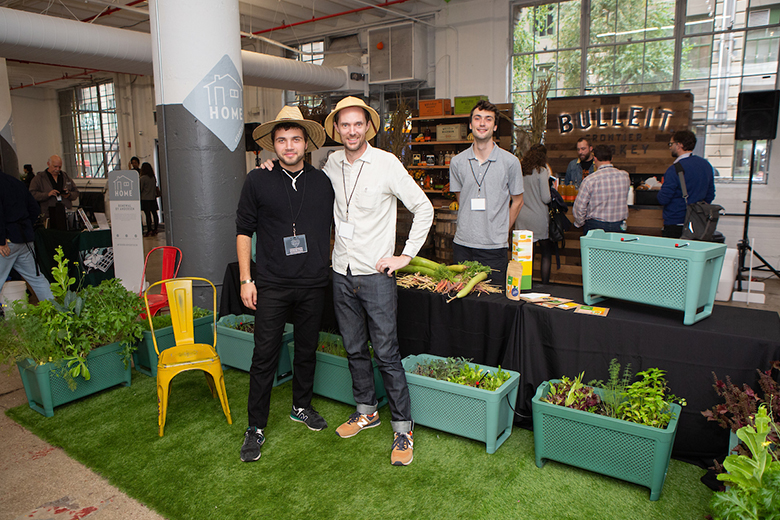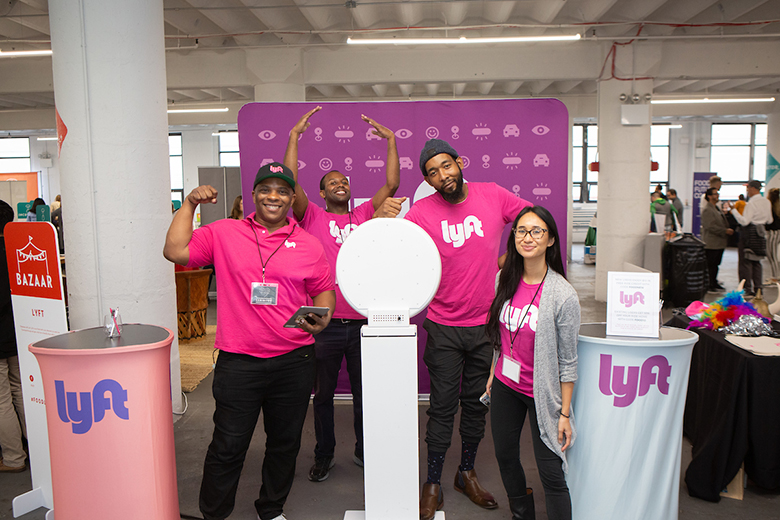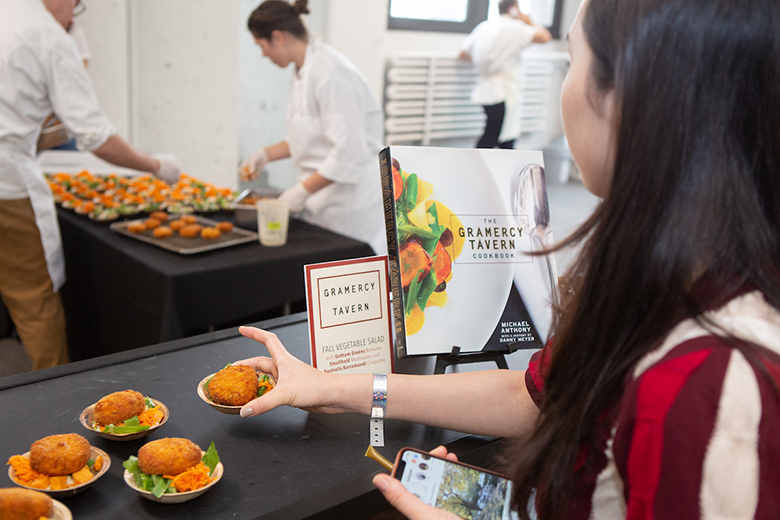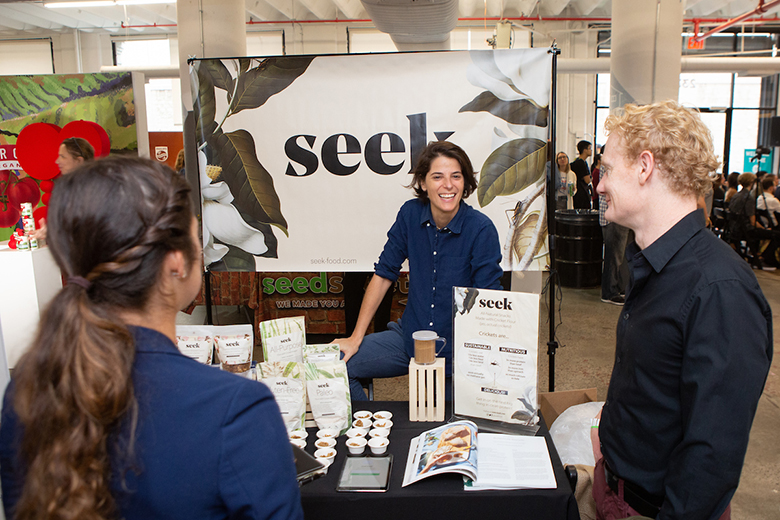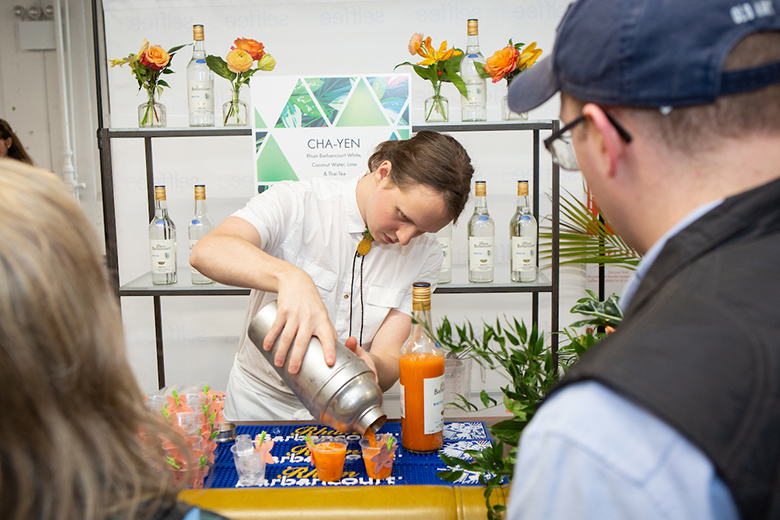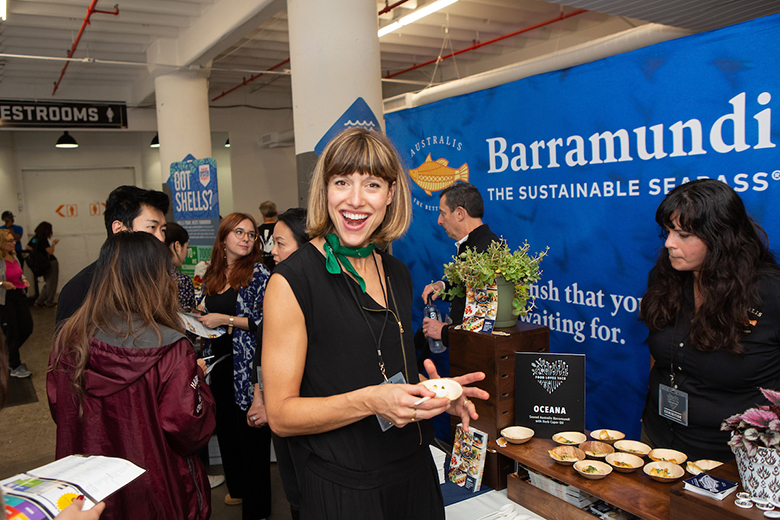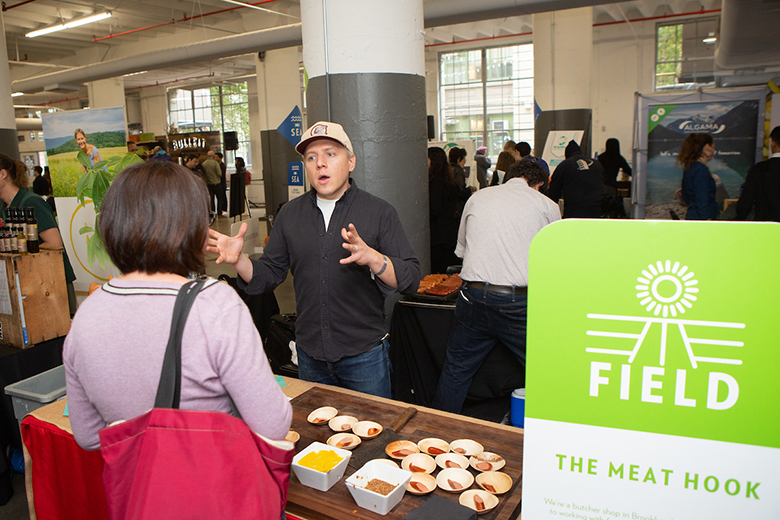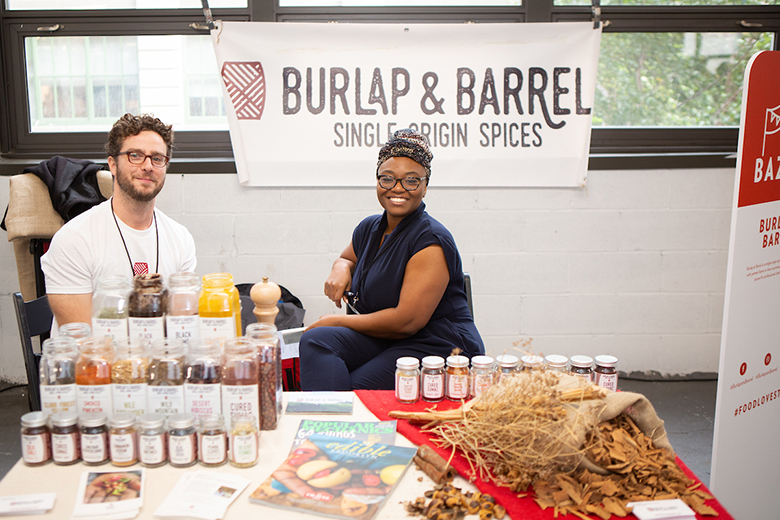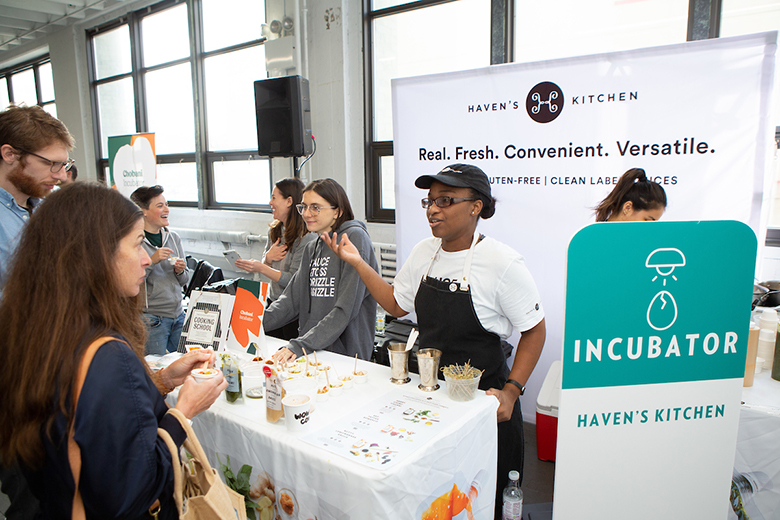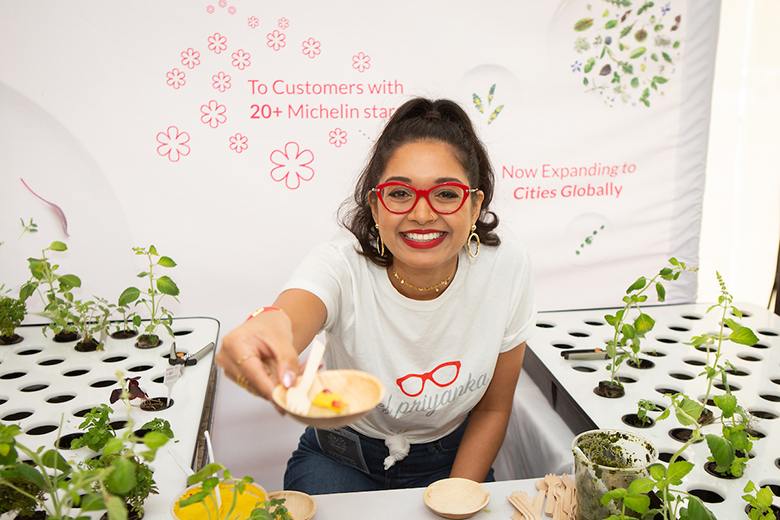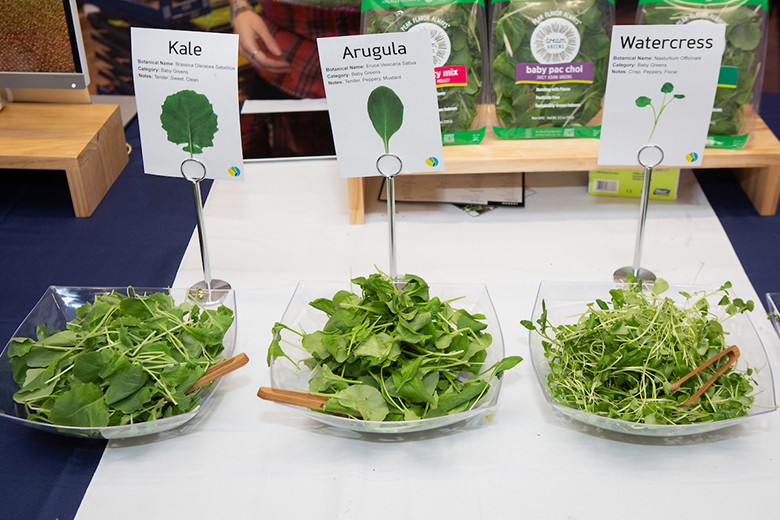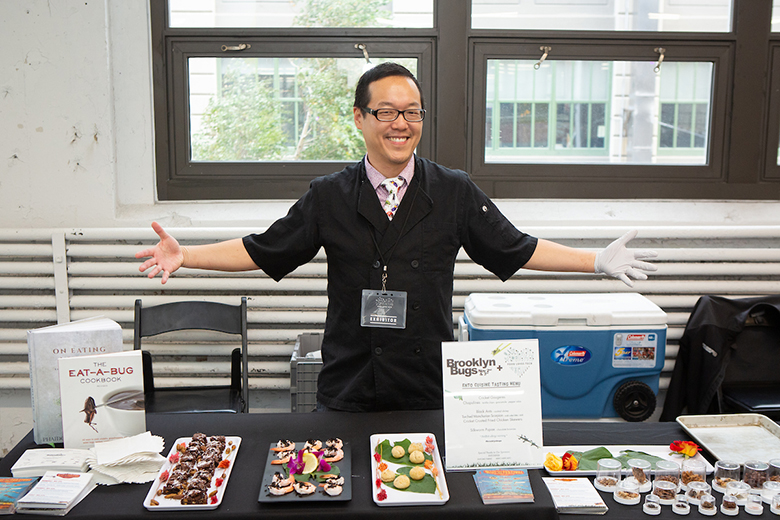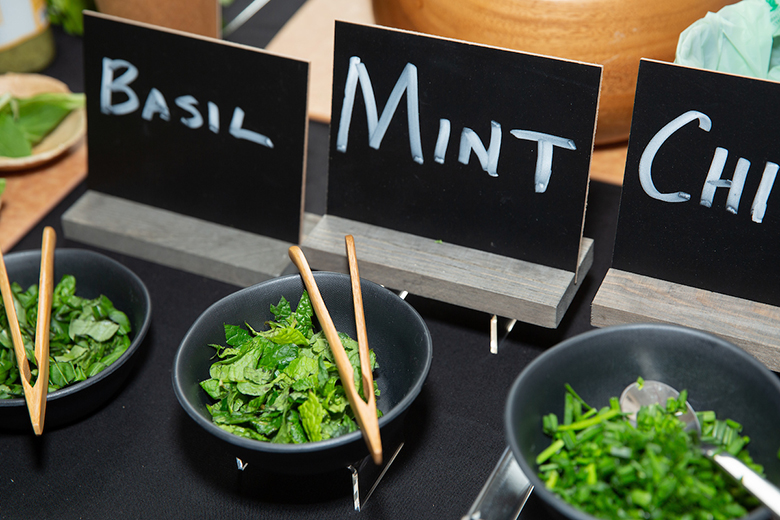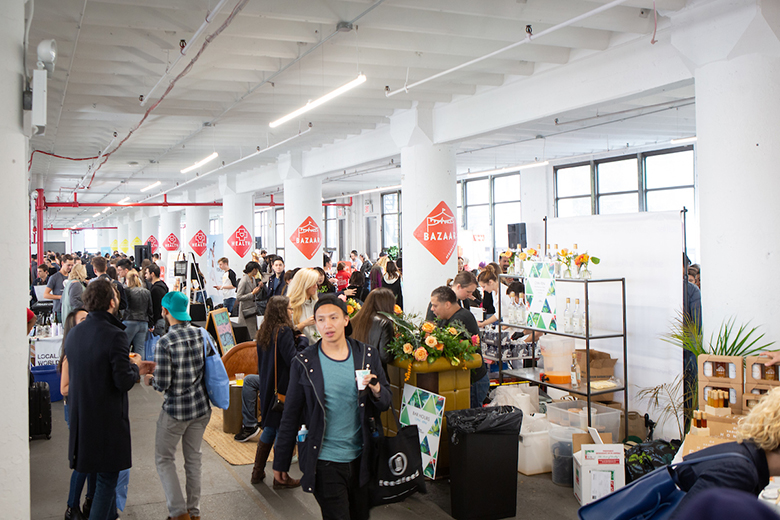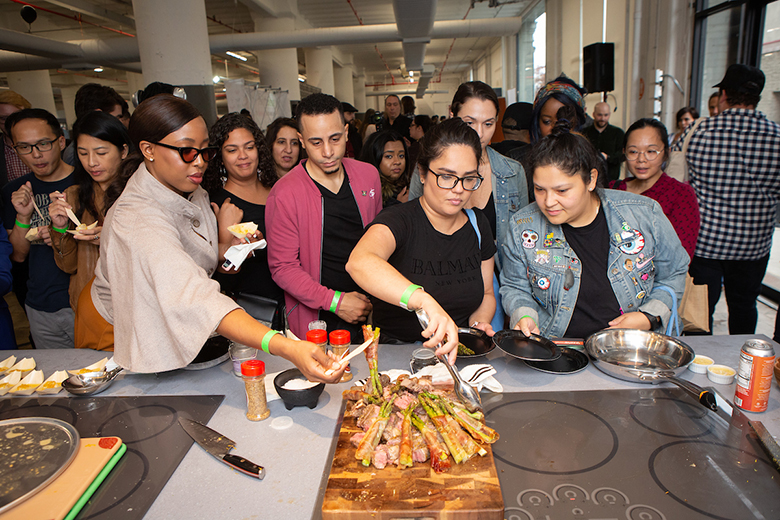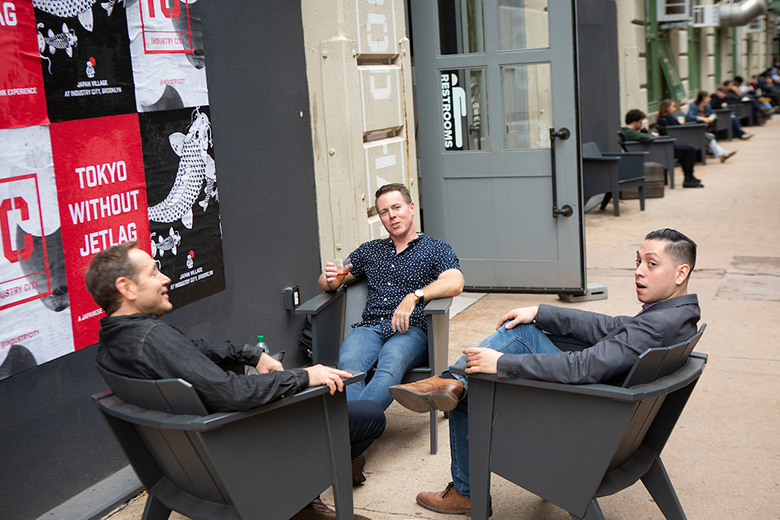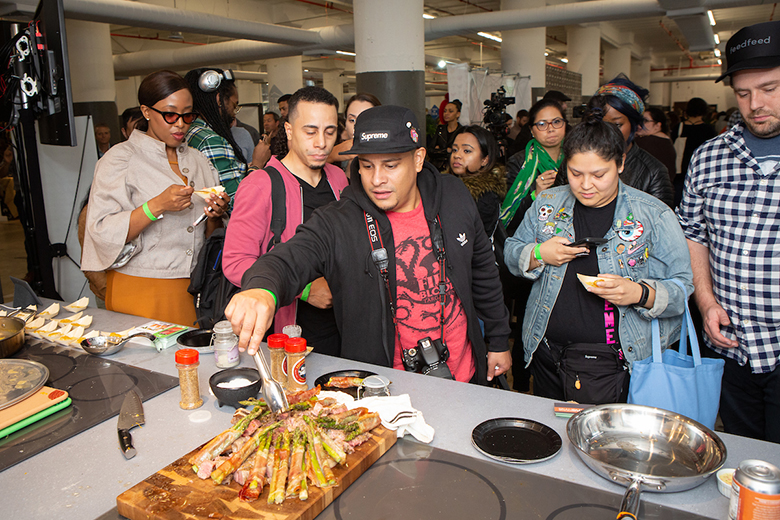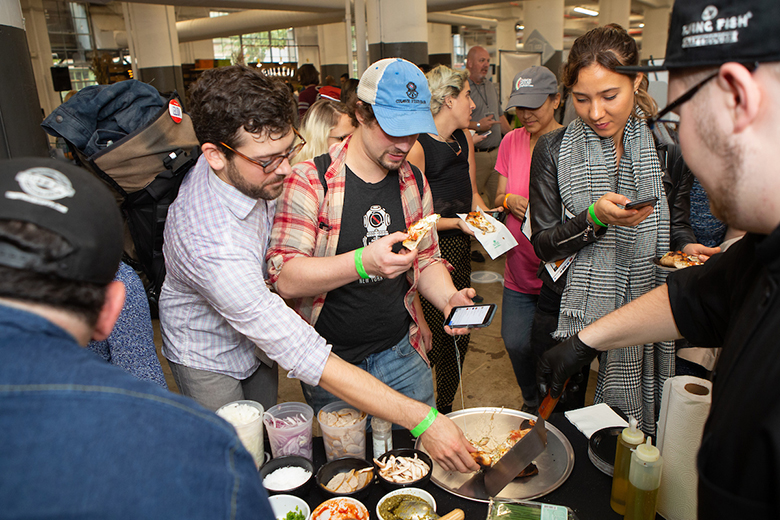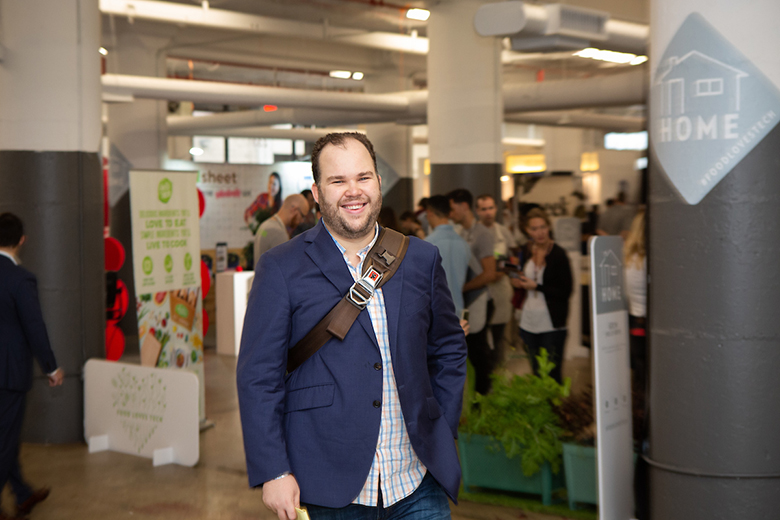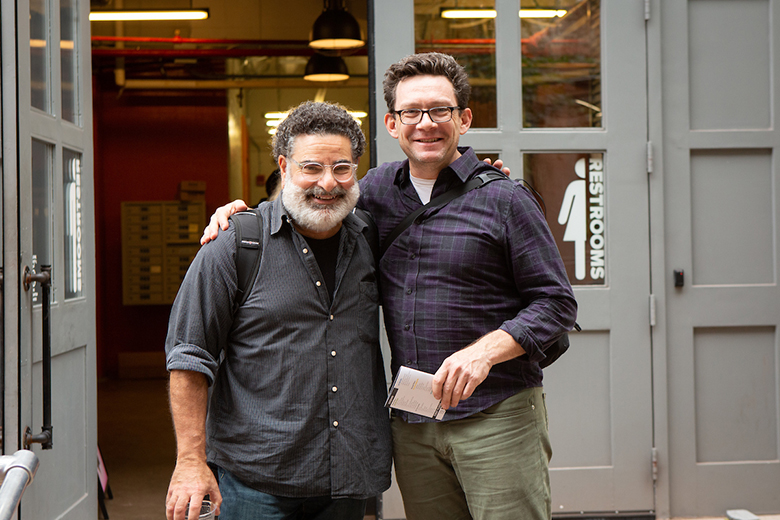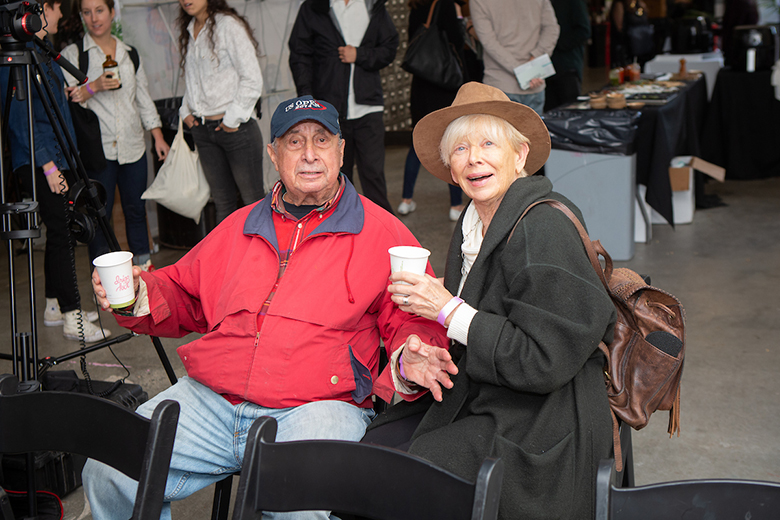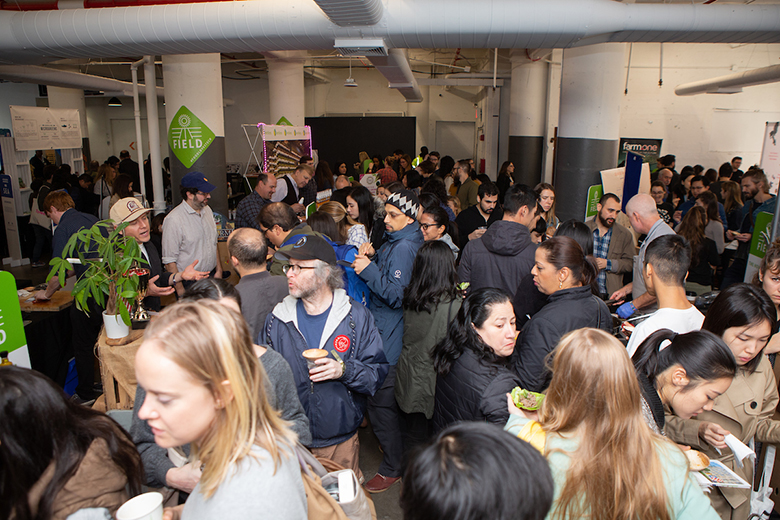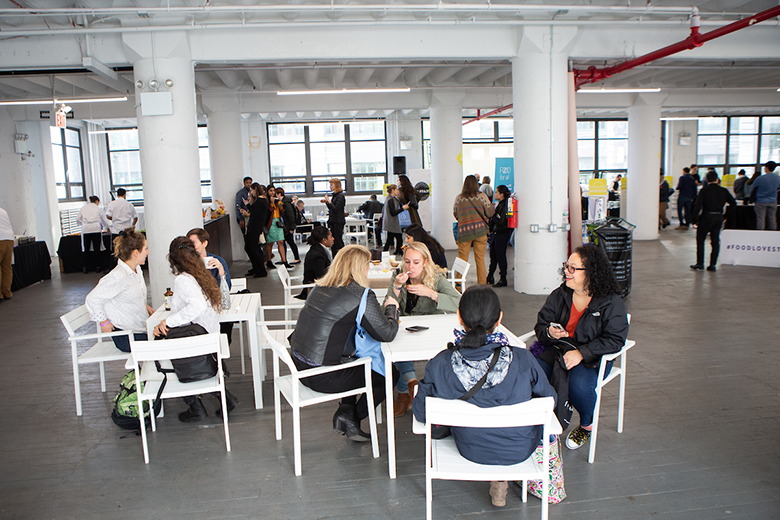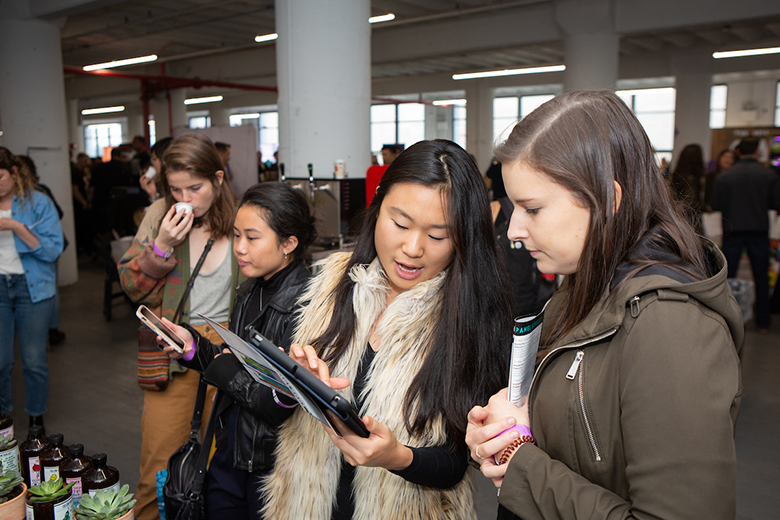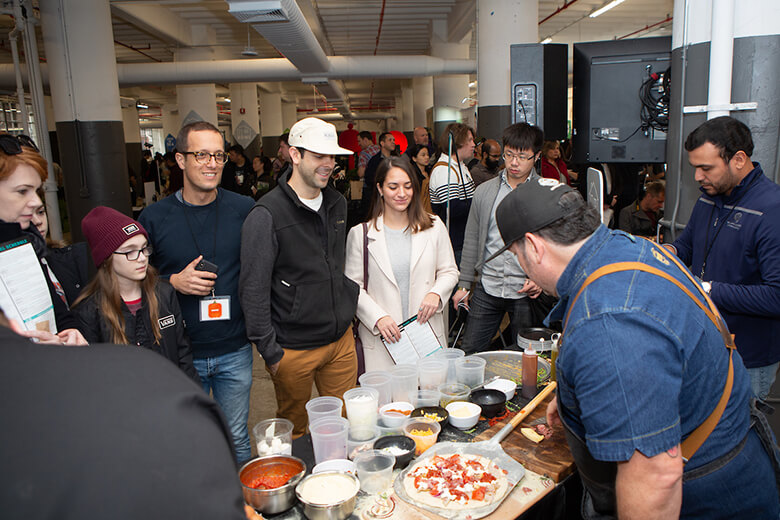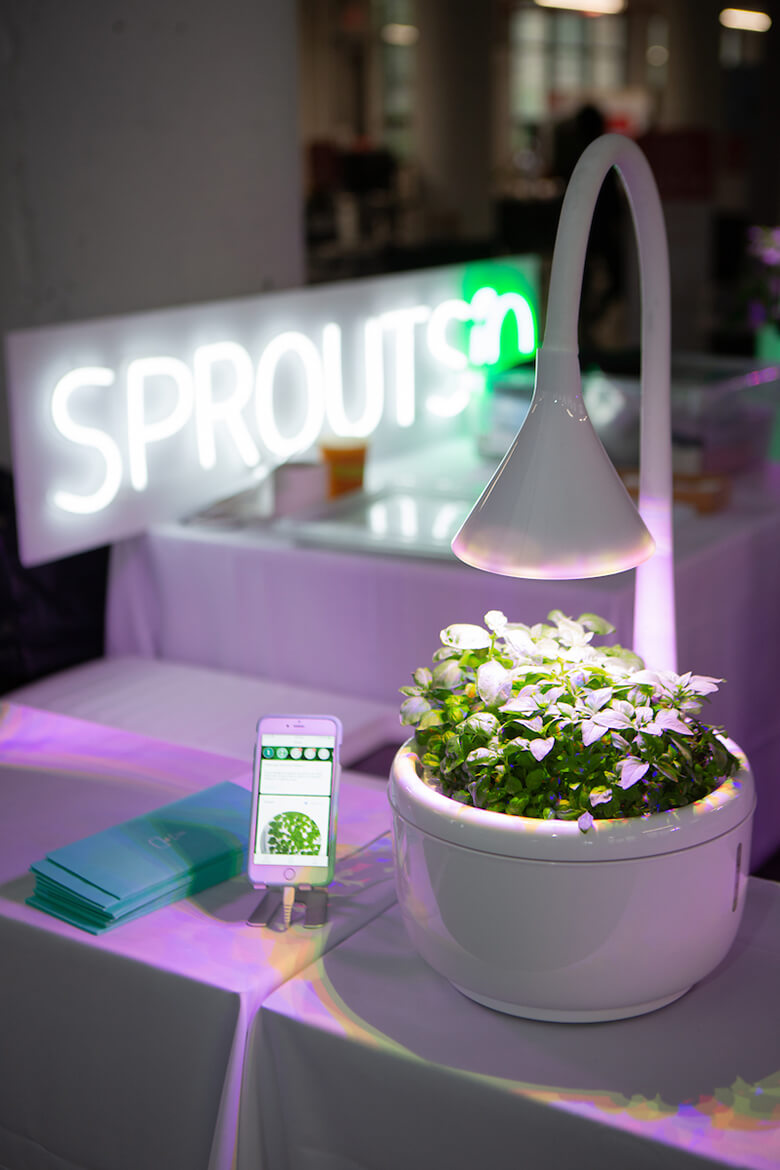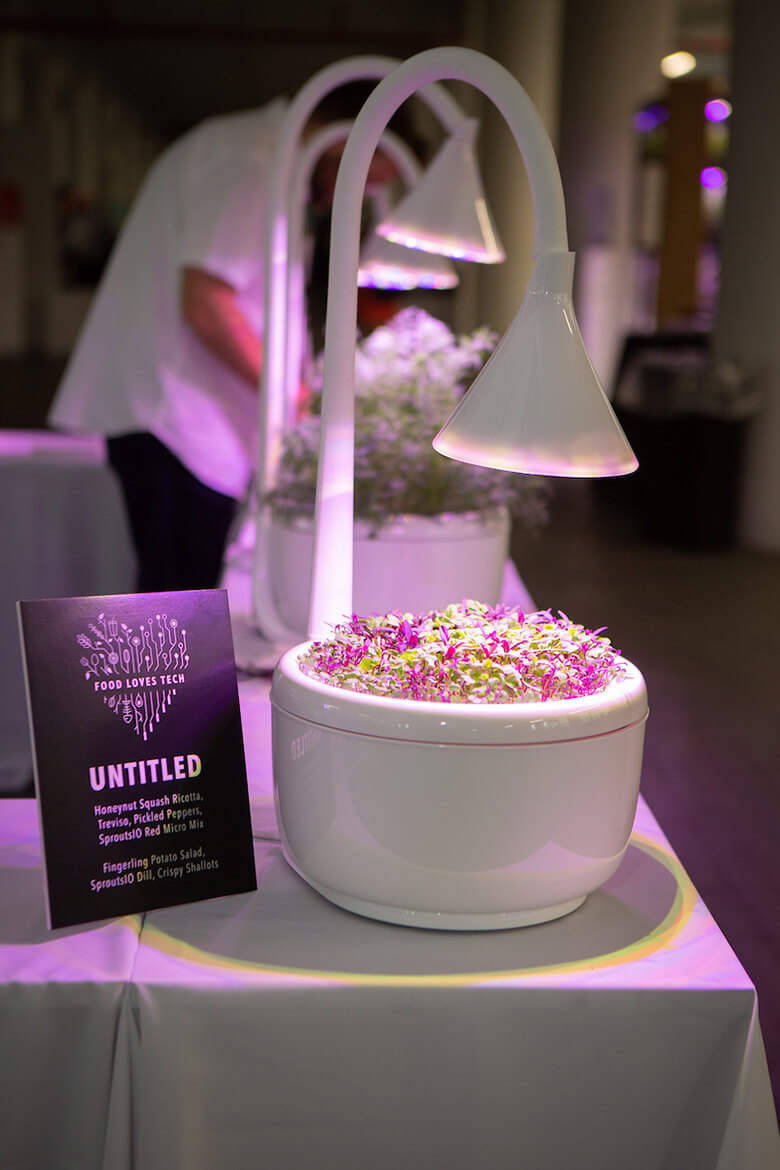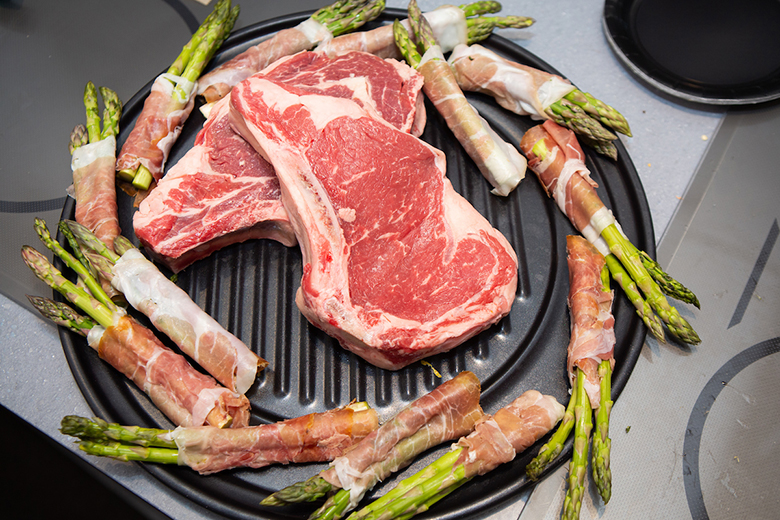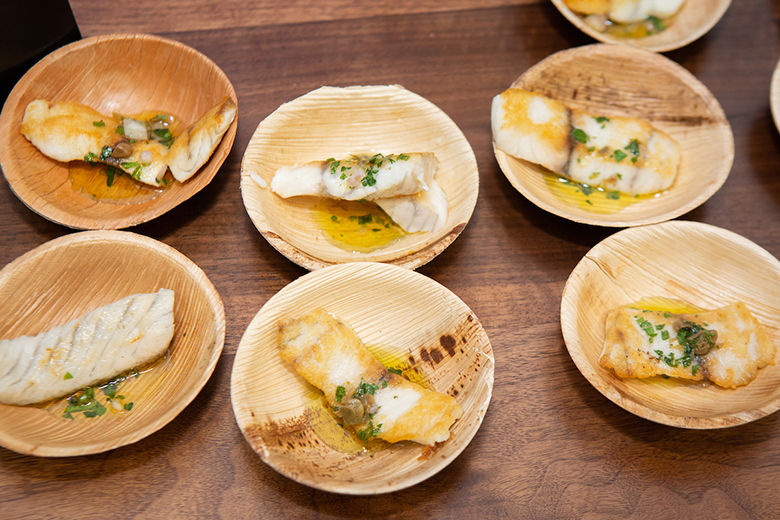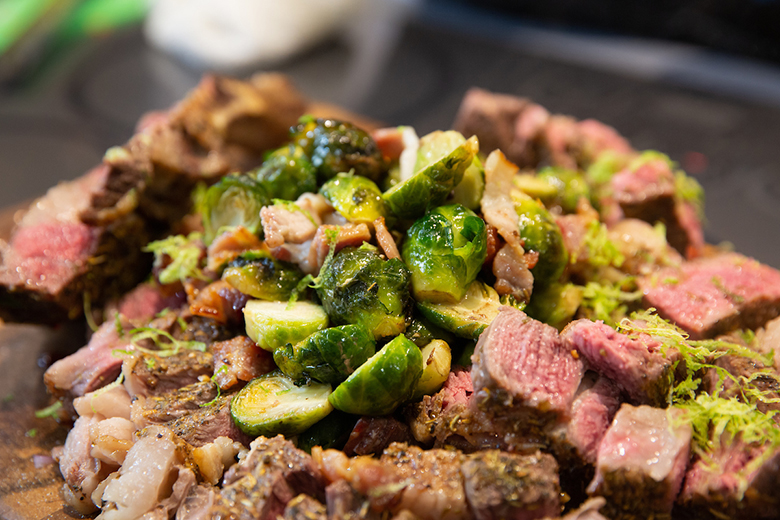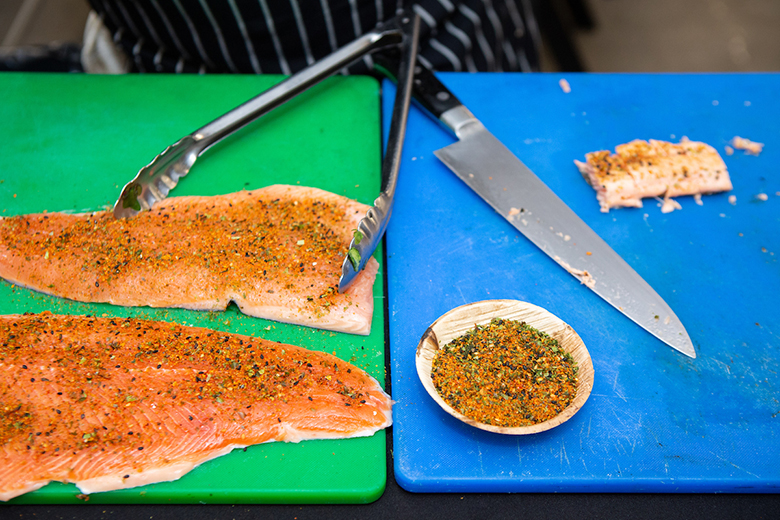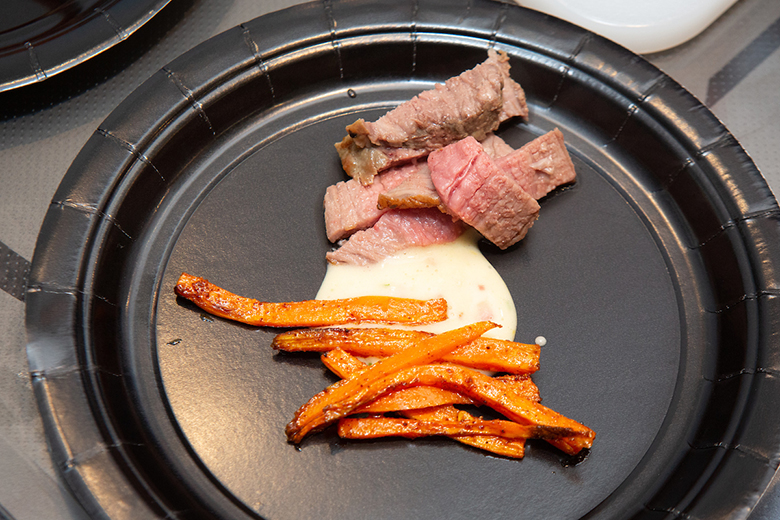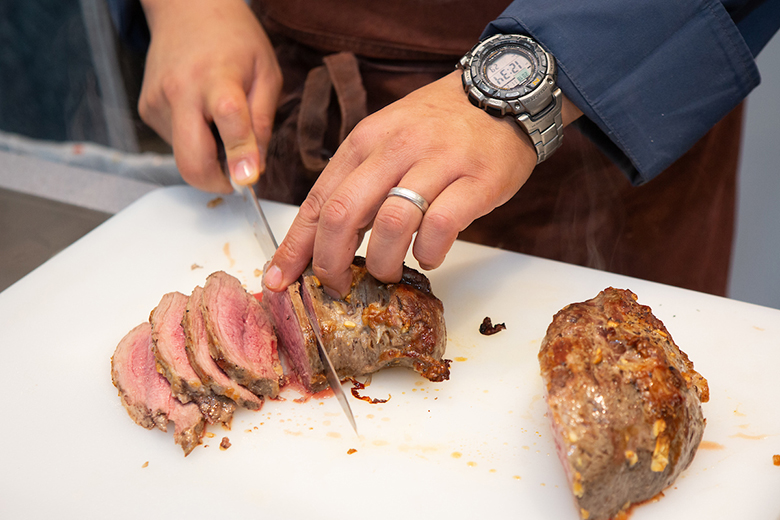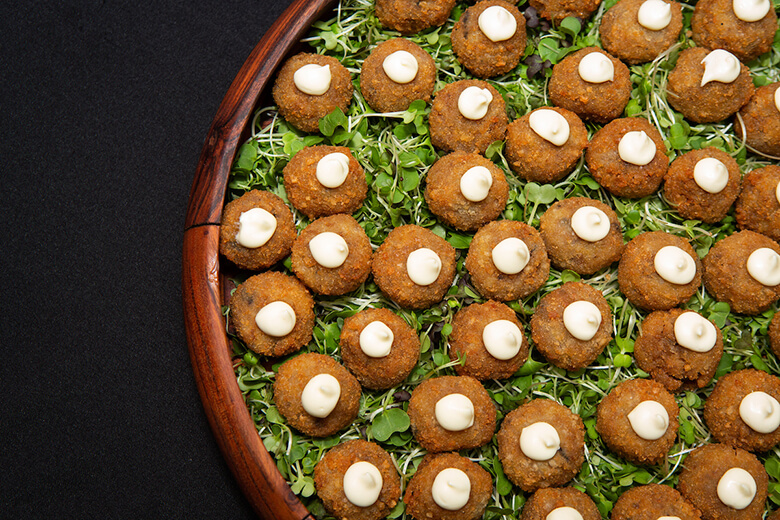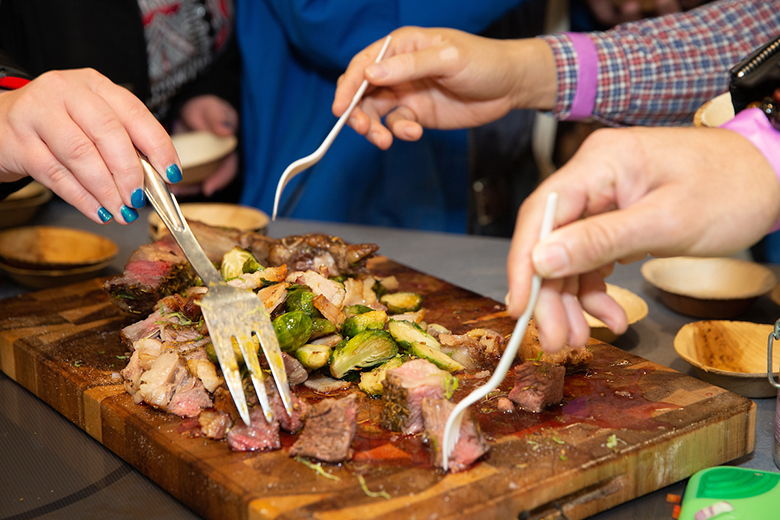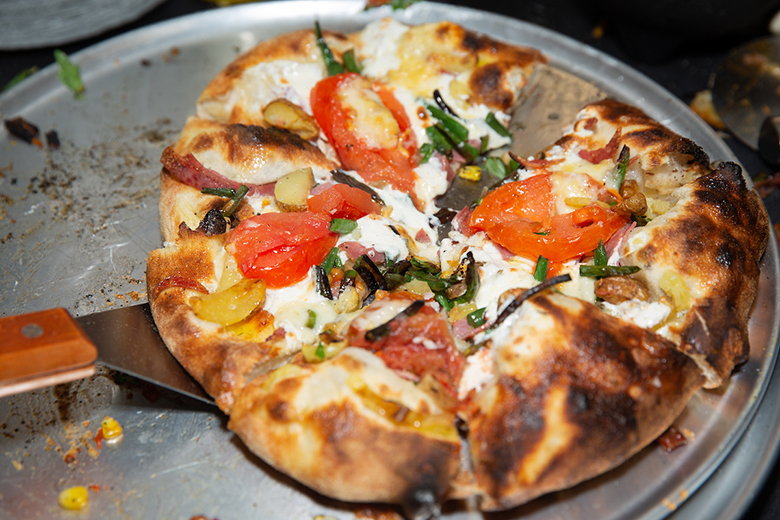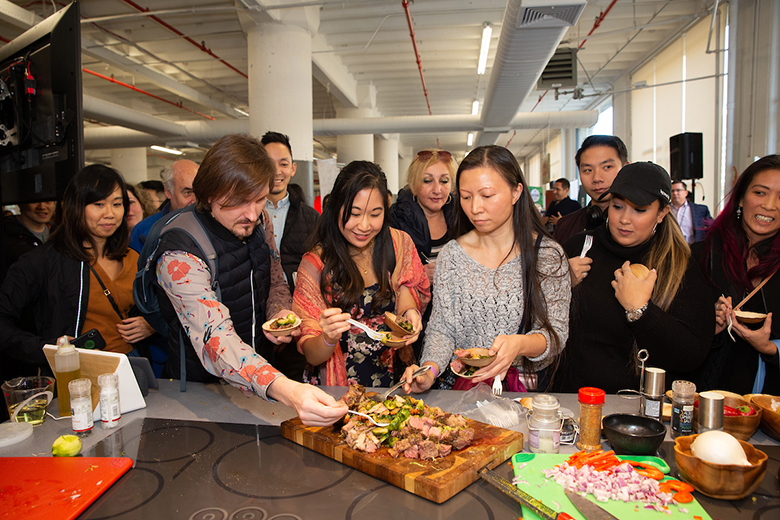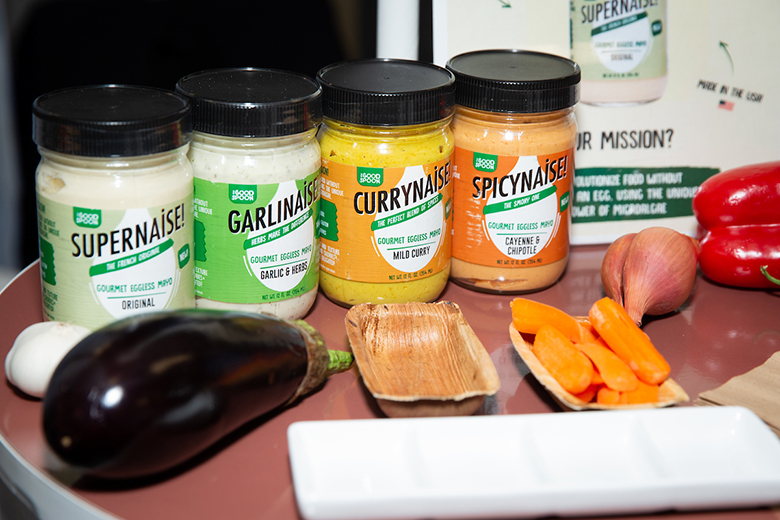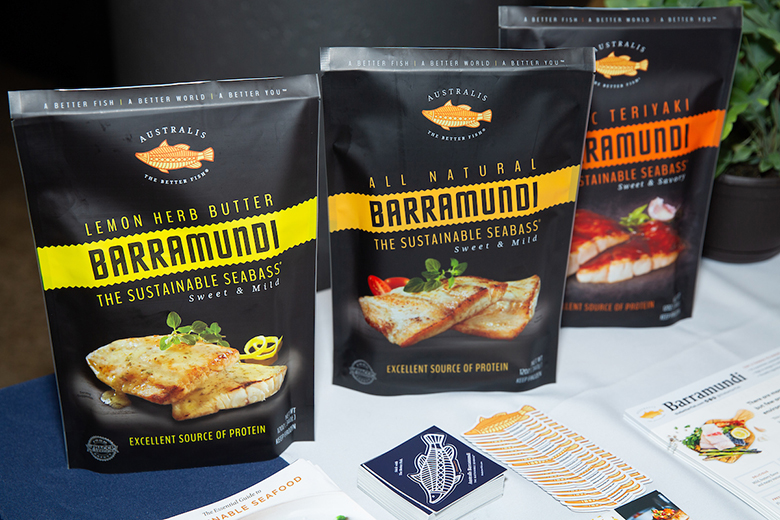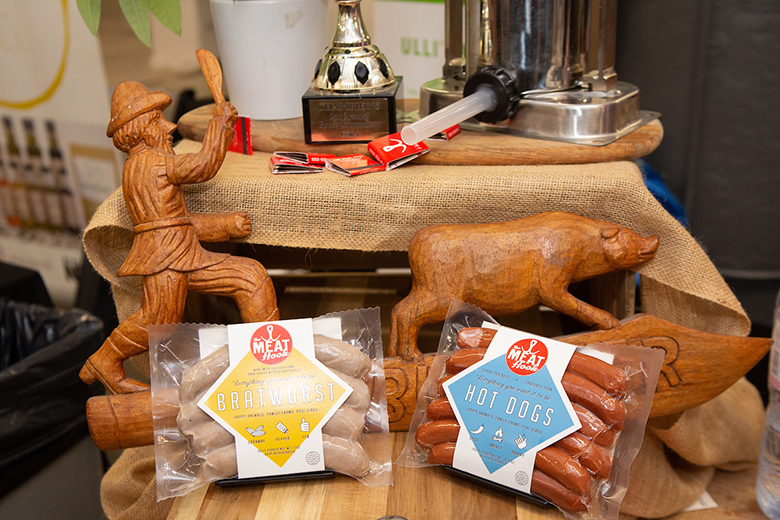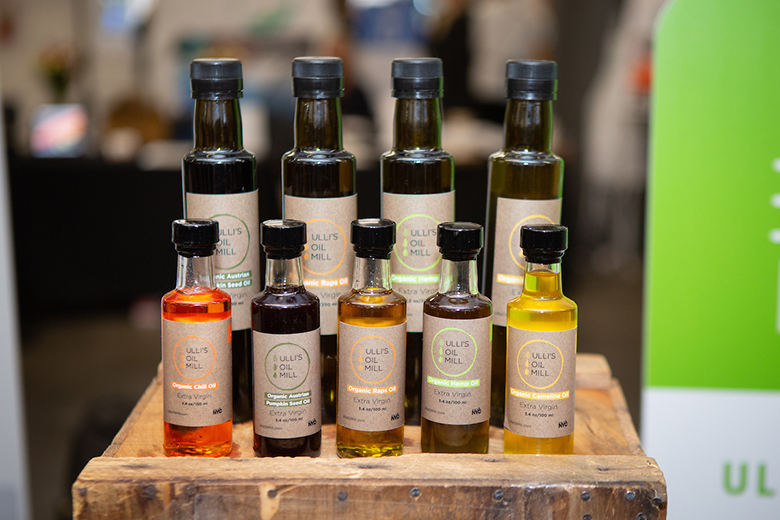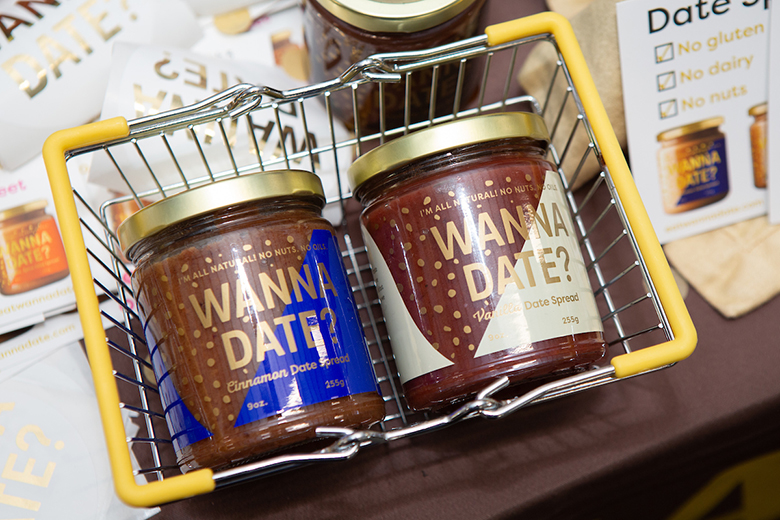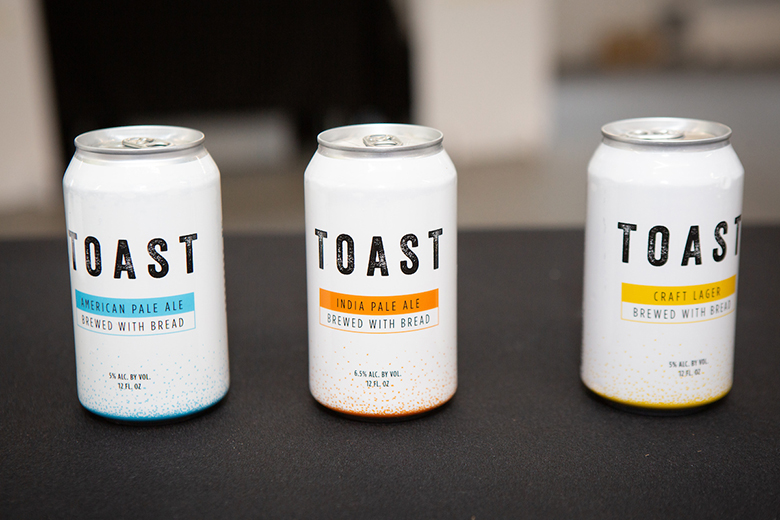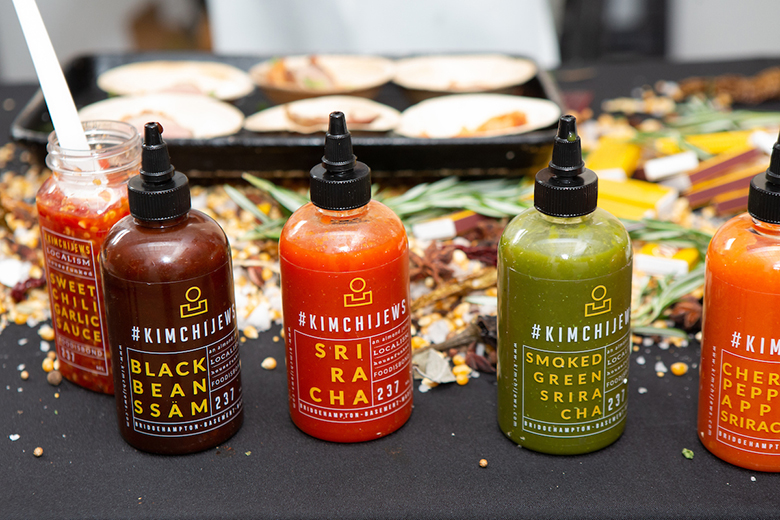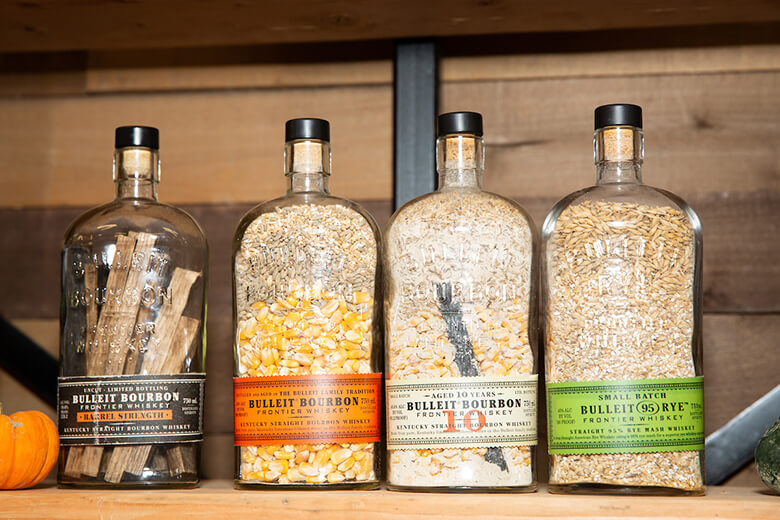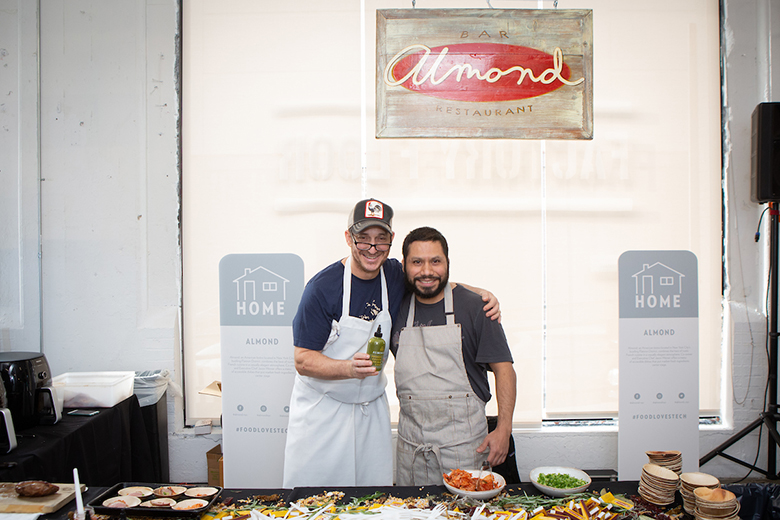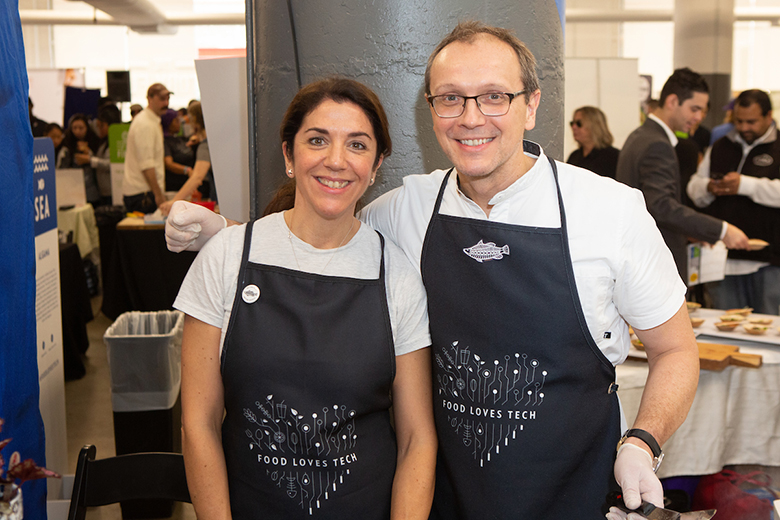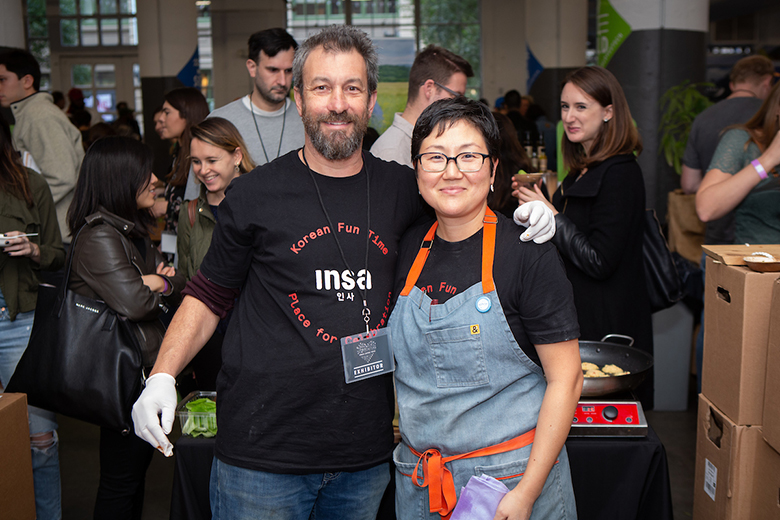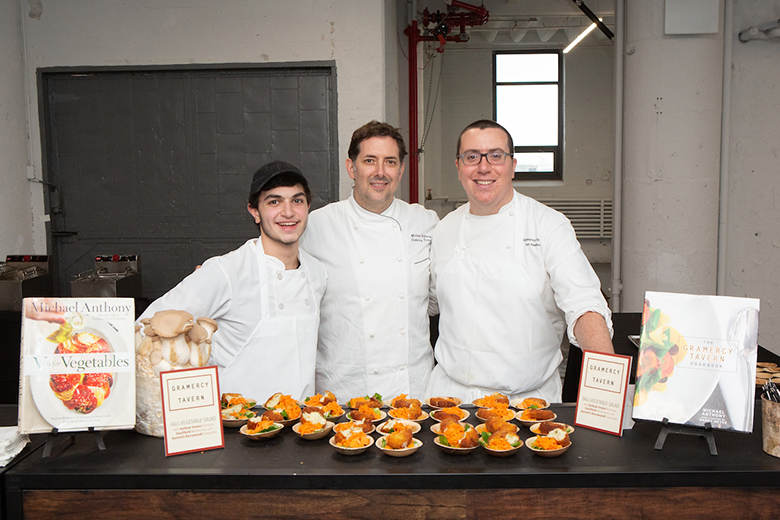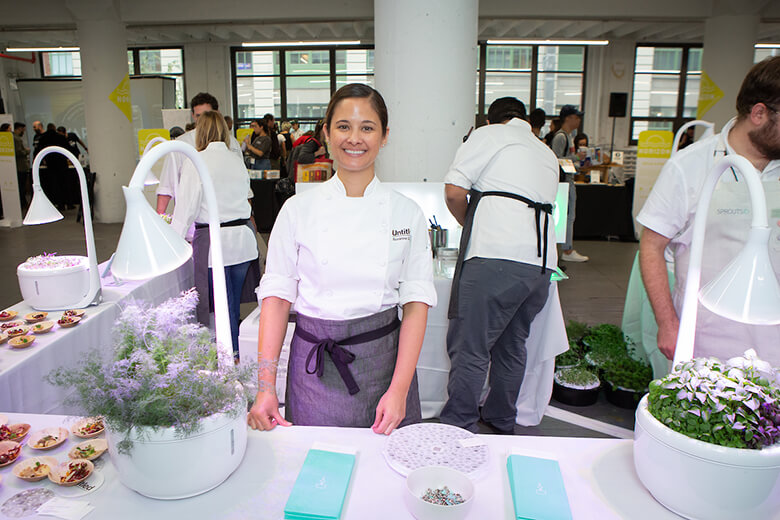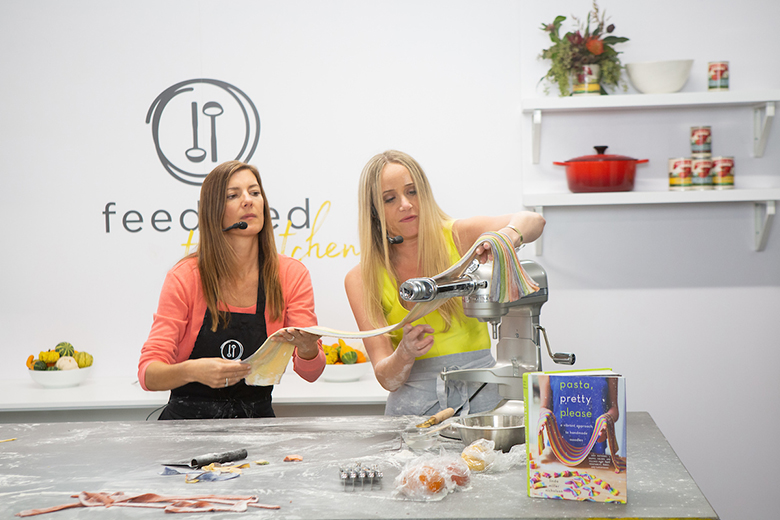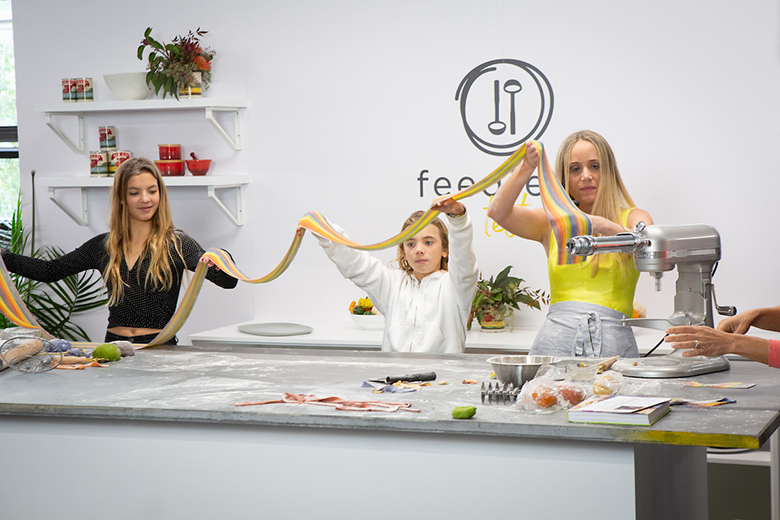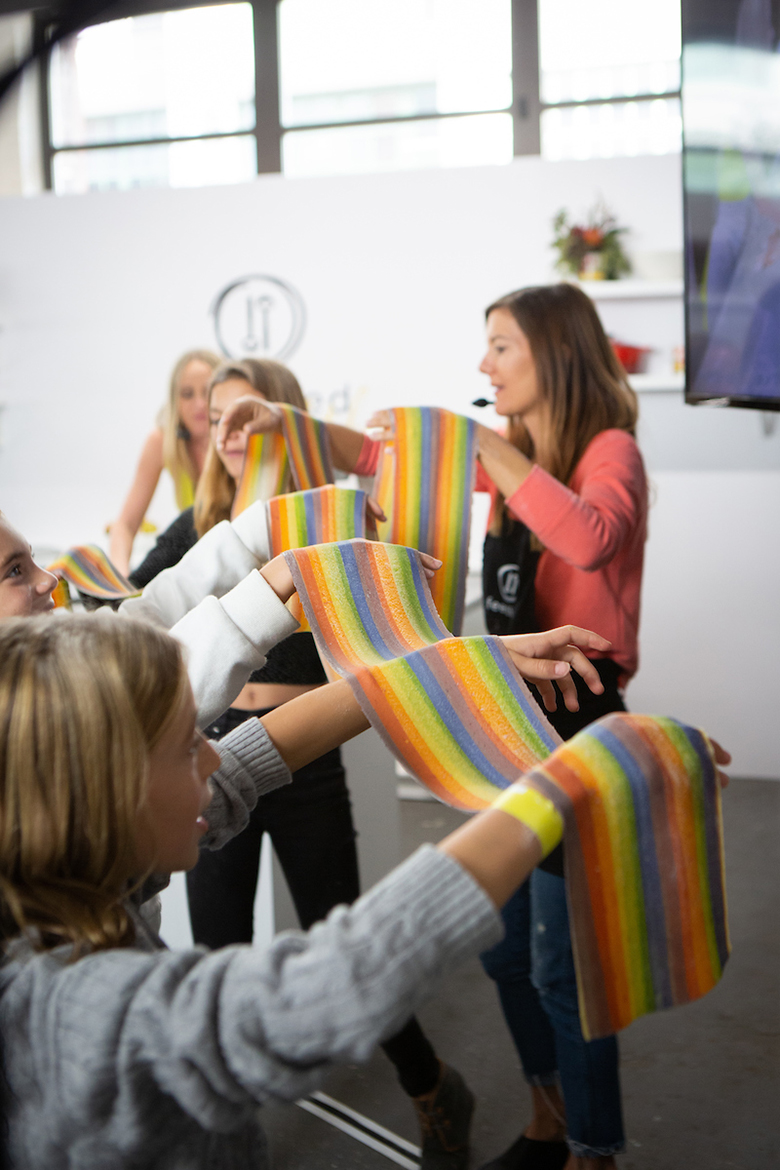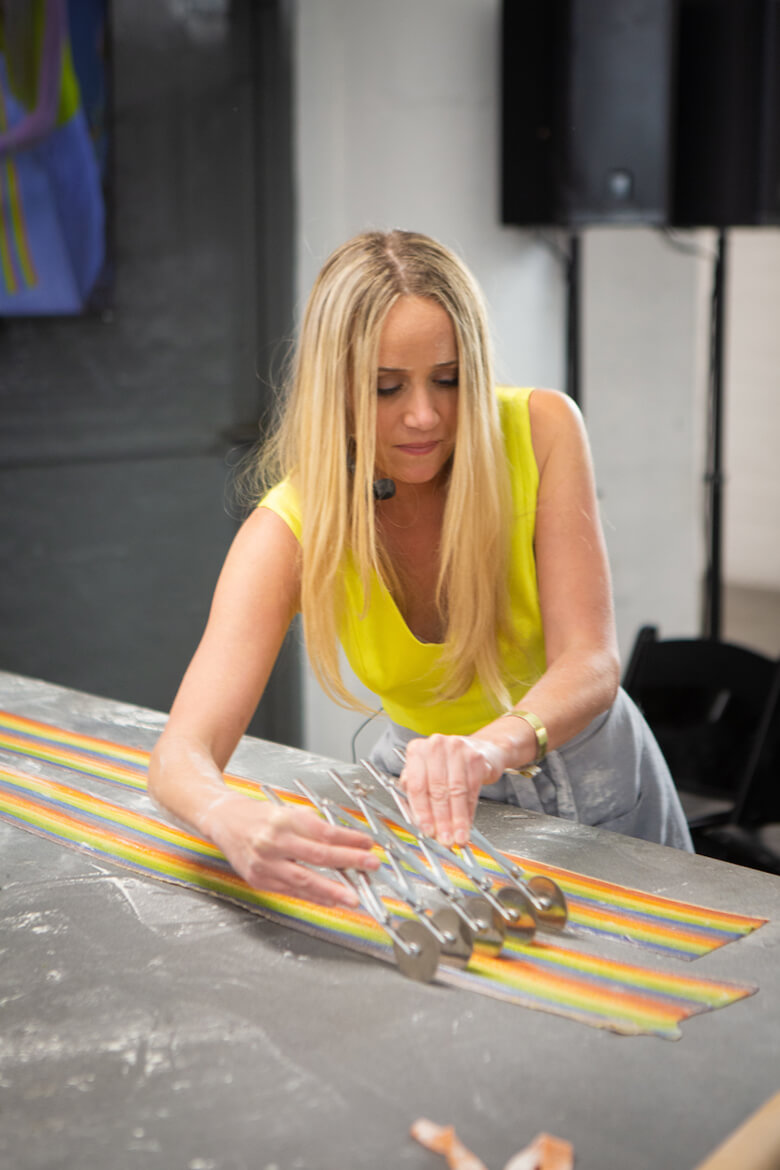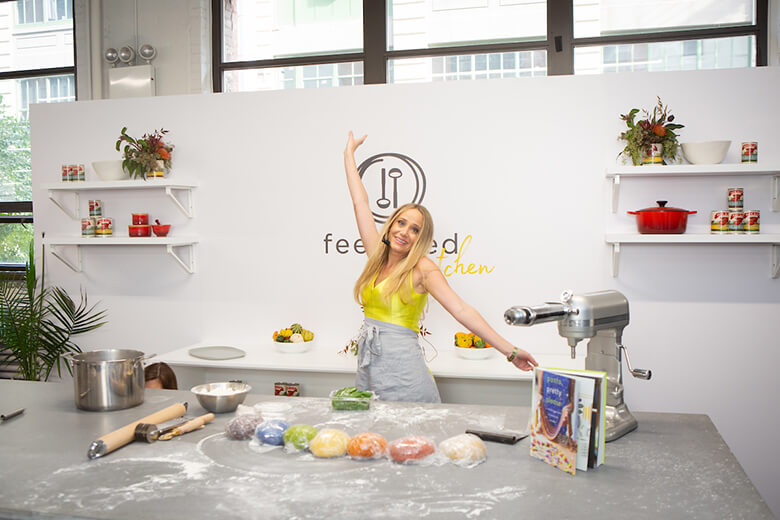
Industry City is a known hub for food makers, with an unprecedented array of in-house dining options to match. But the labyrinthine halls have rarely seen the likes of the exhibitors from Food Loves Tech, whose edible creations included everything from cricket granola and microalgae-based mayo to salads alternately constructed by robots, and others made from produce culled from urban, indoor and hydroponic growing facilities.

Which is to say, it was a return to form for the education-by-entertainment innovation expo, focusing on how technology shapes and changes the way we cultivate and consume food. Back for its third year, Food Loves Tech descended on Industry City on November 2 and 3, granting attendees unlimited access to eight immersive installations (under the thematics “In the Field,” “In the Sea,” “In Good Health,” “In the Home, “In the City,” “Incubator Village,” Bazaar” and “On the Horizon”) along with various tastings, celeb-fronted demos and 13 illuminating panels besides.

There was also an incredible Future of the Cocktail party, impressively wrapping the first night. Sponsored by Belvedere and Blue Point Brewing, it brought together the most forward-looking spirits, brands and bartenders, in order to postulate on the bar of tomorrow. Guests even sipped on drinks capped with QR readable codes that helped generate an “Ultimate First Date” AR experience. When activated with Studio ATO’s app, they prompted attendees with conversation-sparking questions, to ask friends, loved ones and even potential future soul mates.

So needless to say, as far as pure technology was concerned, the weekend proved appropriately cutting edge. It was hard not to be wowed by the previously alluded to Sally the Robot, a sort of vending machine of the future, which can put together salads and other healthy offerings with the push of a button, as well as Barsys, a thermally insulated machine that’s essentially an automated bartender, mixing up over 2,000 drinks, by communicating with a mobile app.

And then there was The Connected Kitchen, outfitted by GE Appliances and produced in partnership with PC Richards and Innit, the world’s first connected food platform, whose software serves as a culinary GPS. By providing content in the form of recipe tutorials and nutrition guidance (including the ability to build customized meals based on personalized food profiles), Innit’s mission is in perfect alignment with GE’s—achieving maximum potential from everyday cooking equipment. Chefs including Tyler Florence demonstrated the ingenuity behind GE’s forthcoming Kitchen Hub—a ventilation hood and touchscreen with built-in Google Assistant and cameras, that allow users to engage in live chat, post photos, watch movies or view how-to videos, leading them through a recipe in real time. And who wouldn’t wish for their stove tops to be fitted with Hesten Cue cookware, embedded with culinary sensors in both pan and burner, that seamlessly adjust temperatures as you cook?

But a highly noticeable throughline this year was how technology can be used to promote sustainability and effect environmental and societal change. For starters, ReThink Food NYC—which rescues and redistributes unused food from restaurants, farms and grocery stores—served as FLT’s charity partner, ensuring that all food from the expo went to provide meals to those in need. And a collaboration with Common Ground Compost further ensured it was a no-waste event by providing bins and signage to help source-separate organics and recycling and by helping to procure eco-friendly products.

As far as installations such as “In the Field” were concerned, Farm.One showcased the seed-to-table technology behind their climate-controlled, LED-lit, pesticide-free units, which can grow specialty produce from pods in barely two weeks (for event purposes, they scaled it down to two minutes). And over at “In the Home,” they were joined by companies such as the organic, zero-waste and local pollinator-supporting Muir Glen (which also provided ingredients for cooking demos in the FeedFeed kitchen upstairs), as well as Urban Leaf, which reimagines the farm experience for apartment dwellers, by turning window sills into easy-to-cultivate edible gardens. “In the City” offered peeks into the farm of the future, too, through innovators like SmallHold, the world’s first distributed farming network, which supplies chefs and restaurants with their own high-output mushroom farms.

In other arenas, Edenworks showed off their aquaponic ecosystems, and Billion Oyster Project advertised the ways in which they’re restoring oyster reefs to New York Harbor. One avenue is through collaborations with like-minded businesses such as Blue Point, who passed out sips of their Good Reef Ale (for every pint sold, the BOP plants five oysters in their community reefs). And Square for Restaurants held court in the Innovator’s Circle Lounge, engaging industry folk with their fully integrated point of sale system that matches the pace, complexity and specific needs of restaurants. Because as long as we’re saving the fish, we might as well throw a bone to beleaguered hospitality workers, too!

As for ready-to-eat food, scores of sustainably minded producers dwelled upstairs, scattered throughout “In Good Health,” “Bazaar,” “On the Horizon and “Incubator Village.” Unsurprisingly, the holistic healing properties of cannabis and CBD were on full display, courtesy of Pot D’Huile (purveyors of infused olive oil) and Potli (peddlers of hemp imbued raw honey). And many others addressed food waste, including RIND and their snackable citrus peels, and Yappah’s chicken crisps, formed from upcycled poultry (another notable exhibitor was Food For All, allowing customers to “rescue” unused meals right before restaurants close, by purchasing them for 50% off).

Victims of the noted oat milk shortage were doubtless thrilled to find Oatly in residence (their vegan dairy alternative has emerged as a cult coffeeshop favorite). And there were ample incentives to up one’s alcohol consumption as well, thanks to sites like Wainscott Main, an online shop that allows you to select wine like a somm (selections are merchandized through producer stories and organized not just by varietal but body, weight, texture, occasion, menu and budget!). Mindful producers included companies like Proud Pour—wines that fund bee habitat and oyster restoration in 20 states—and Toast, which brews New York beer using surplus bread and donates all profits to Feedback, their partner charity.

Panel discussions organized by Edible Brooklyn editor-in-chief Ariel Lauren Wilson also underscored this humanitarian focus. Conversations ranged from “What Can Food Tech Do for Restaurants” and “Preventing Food Waste Before It Starts” to “Genetics’ Role in the Food Supply” and “What’s the Future of Urban Agriculture”—during which the phenomenon of food deserts was likened to food apartheid, and spectators were urged to take an active role in helping shape policy.

Yet another means by which food could well pave the way, to a brighter, more sustainable future.


